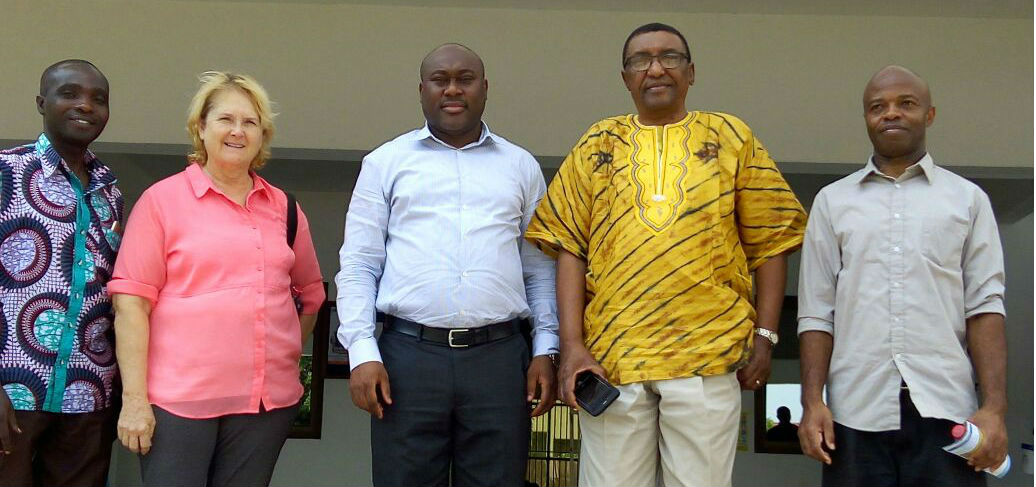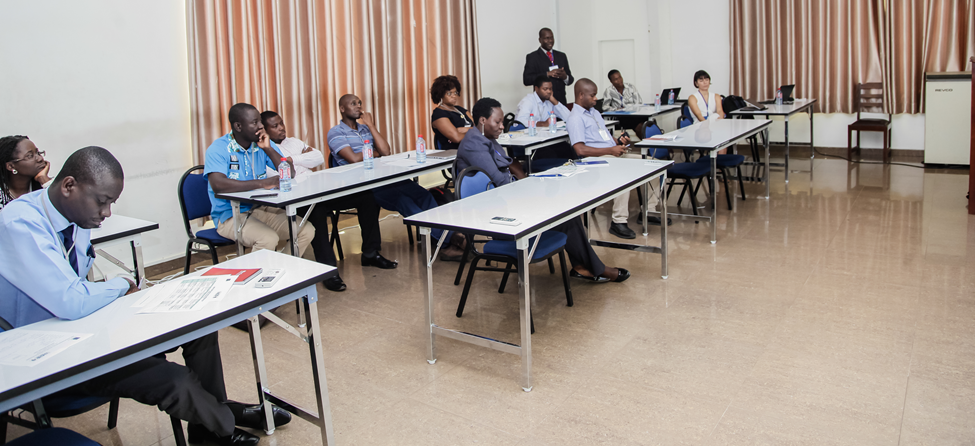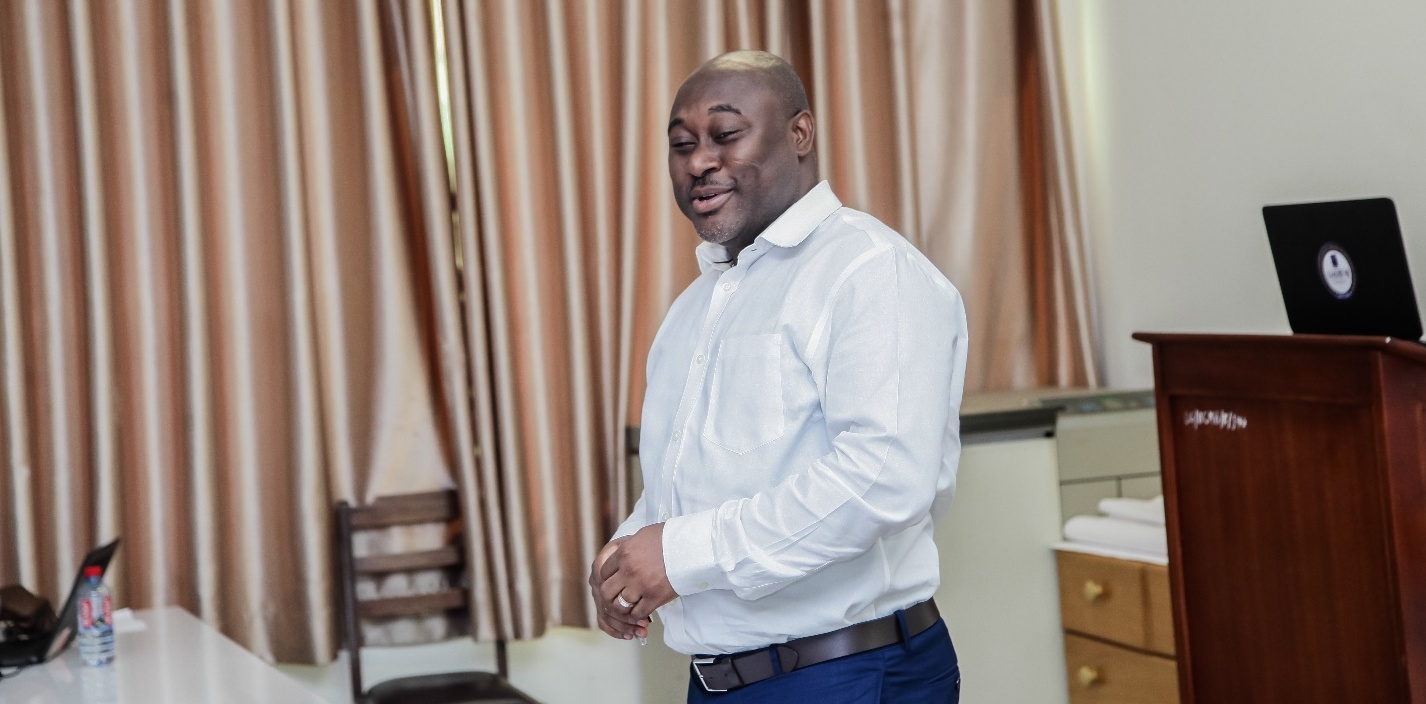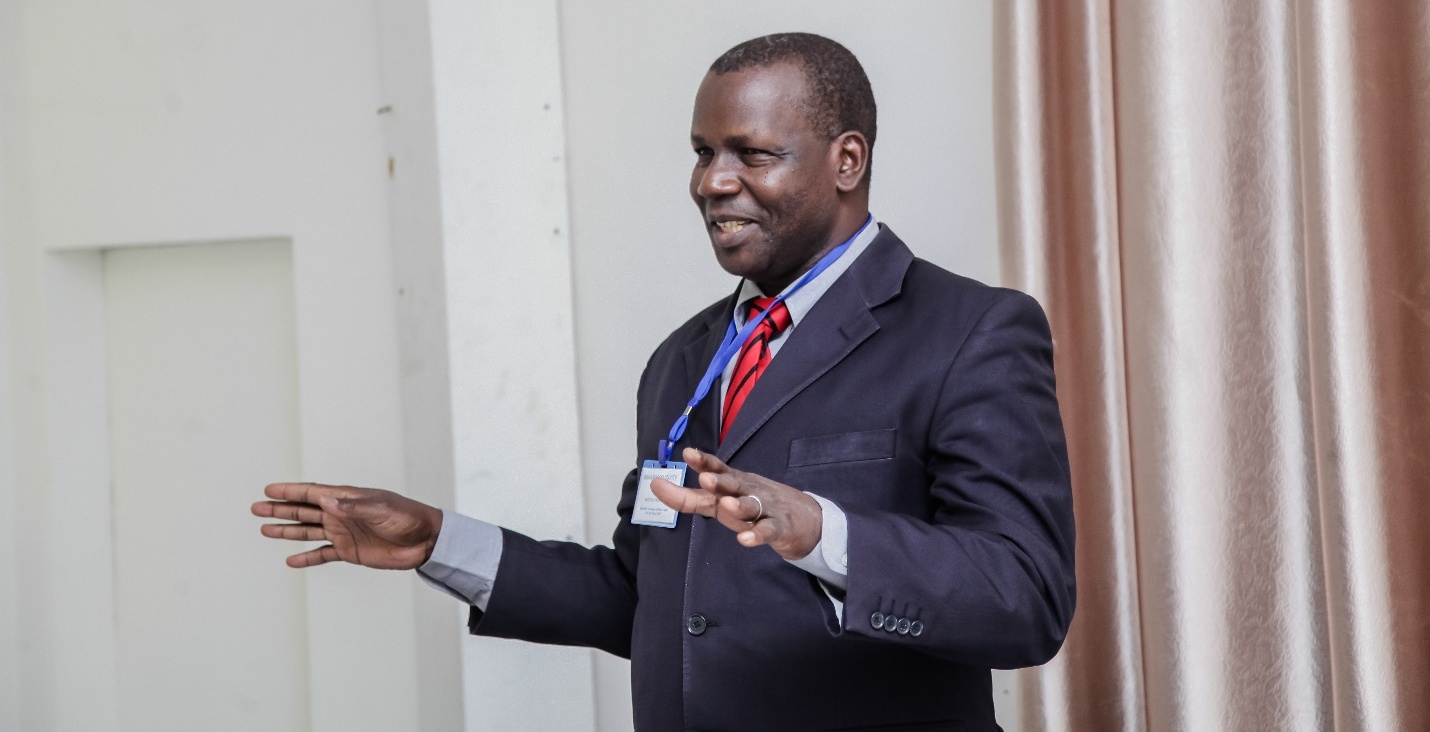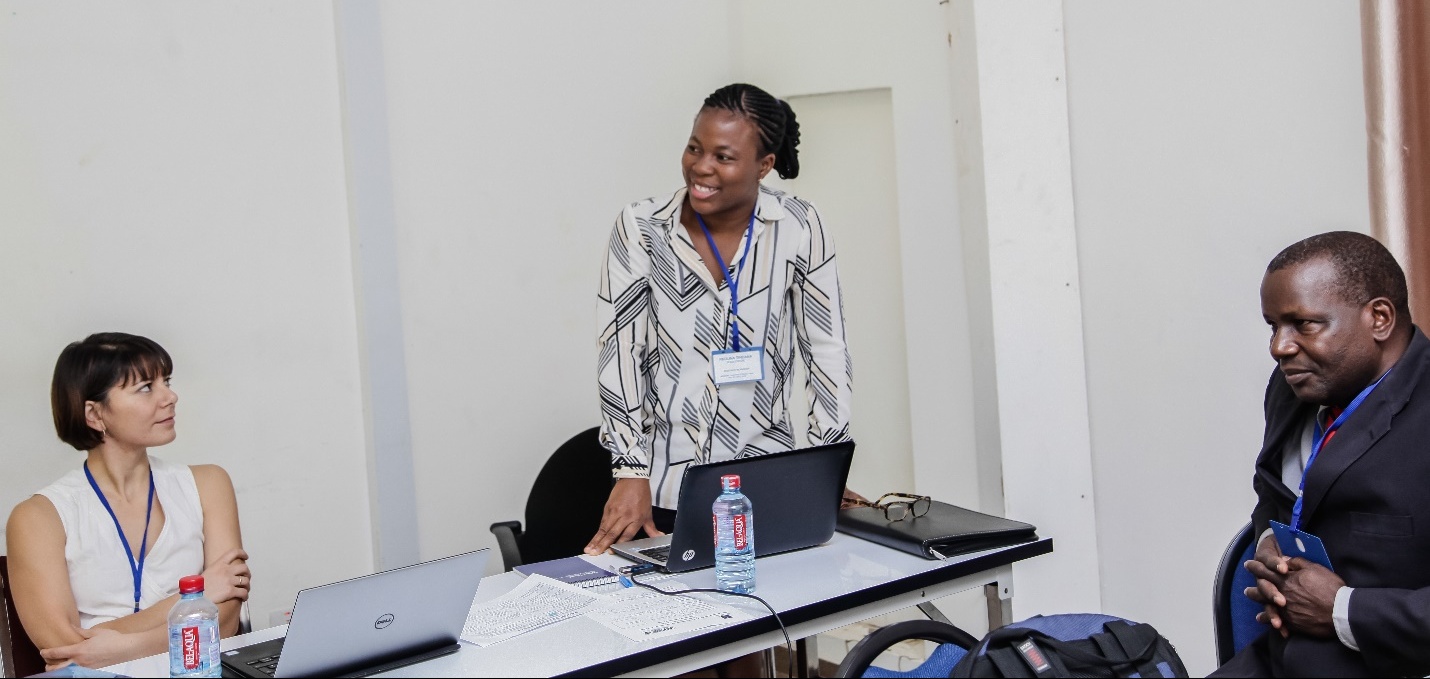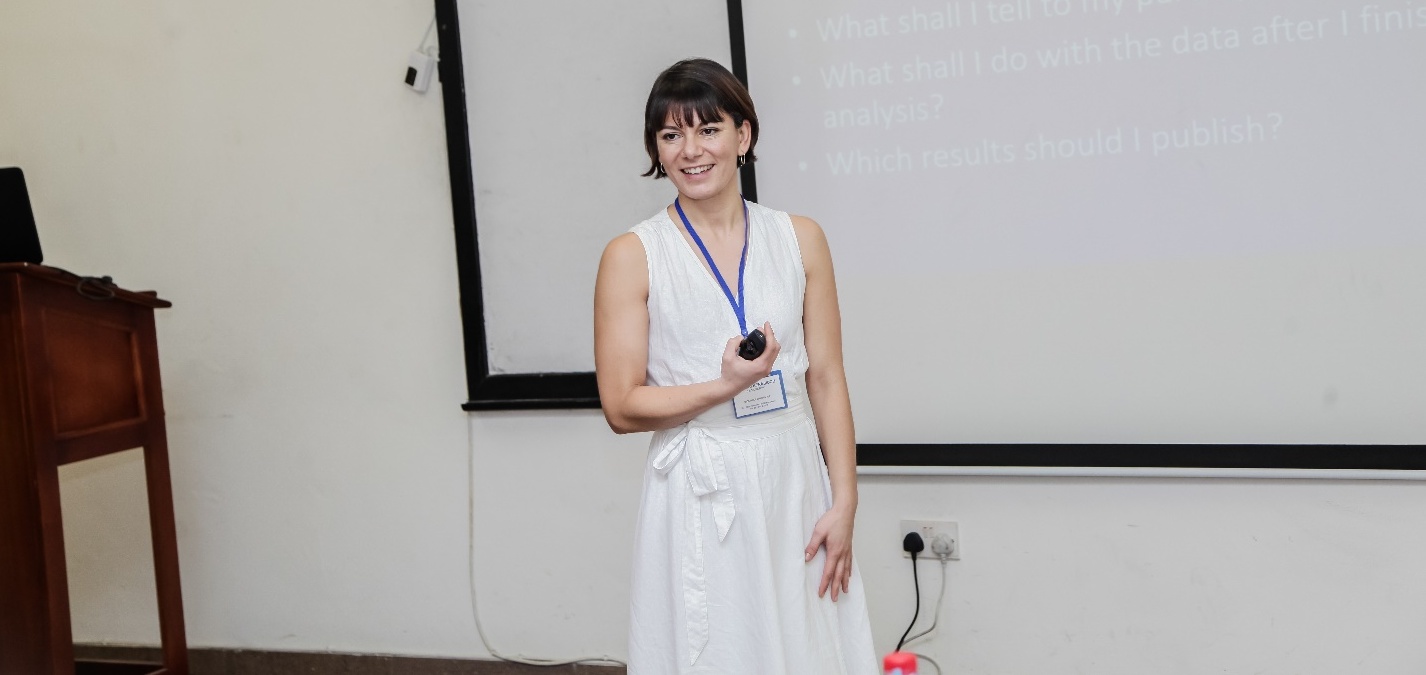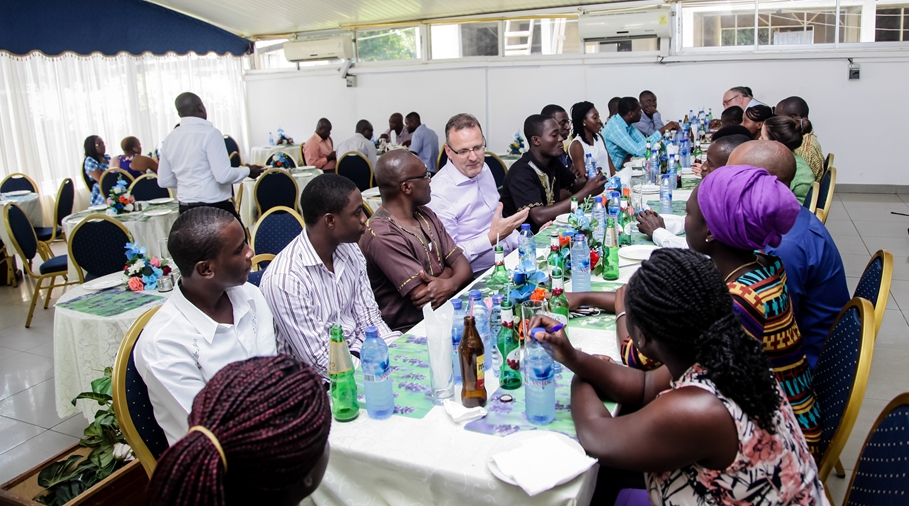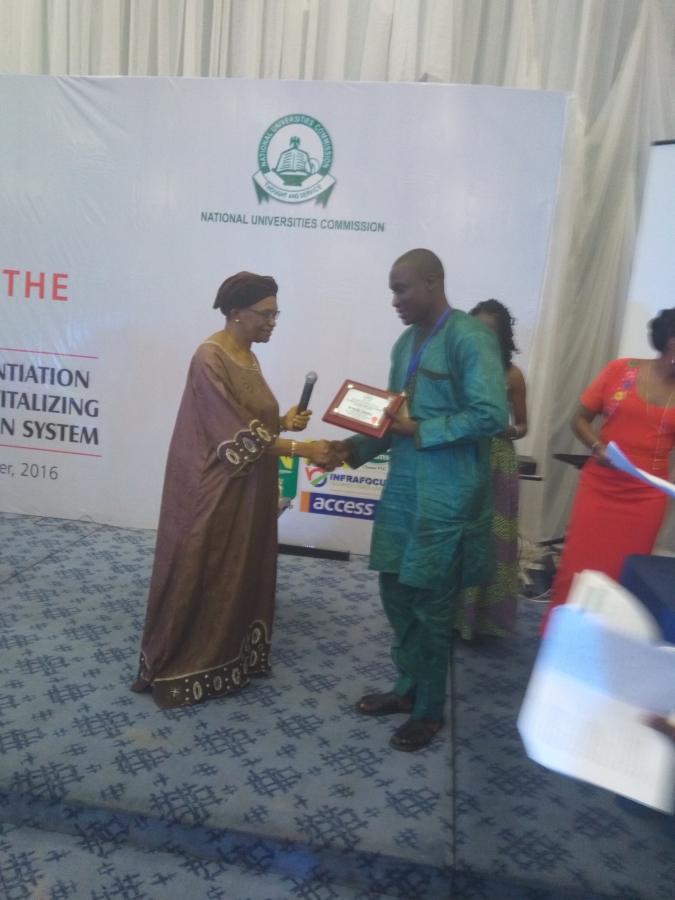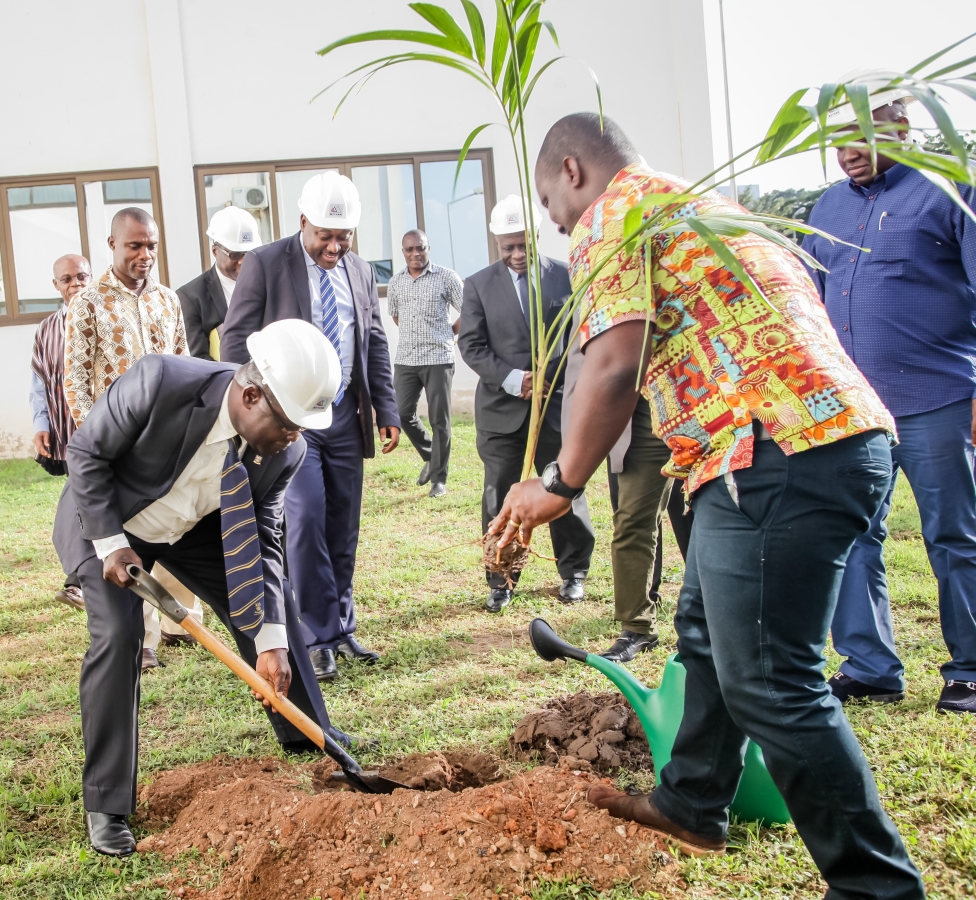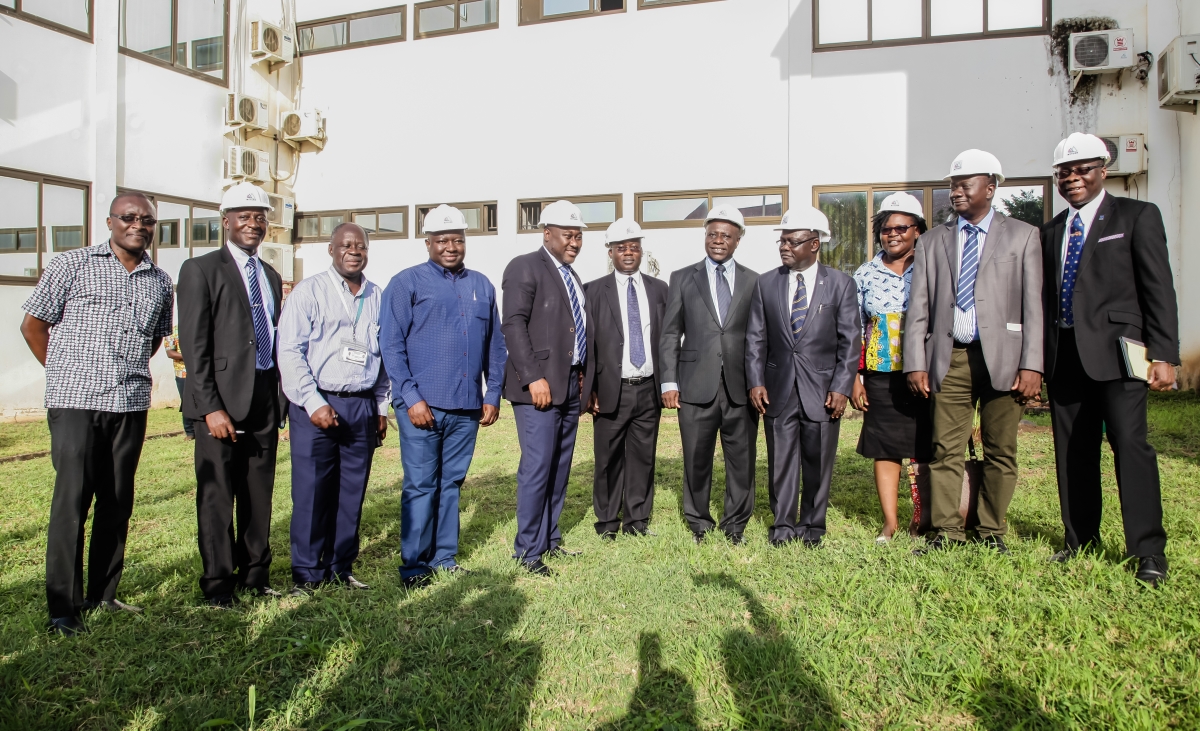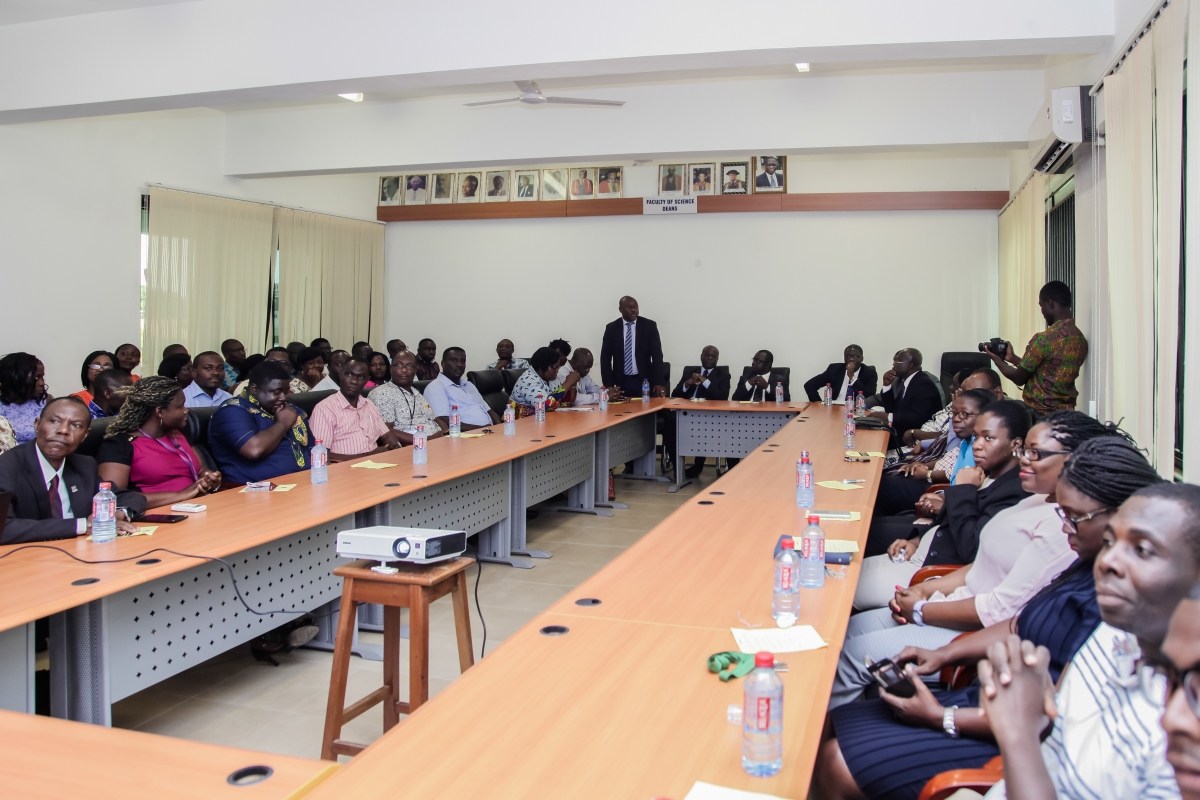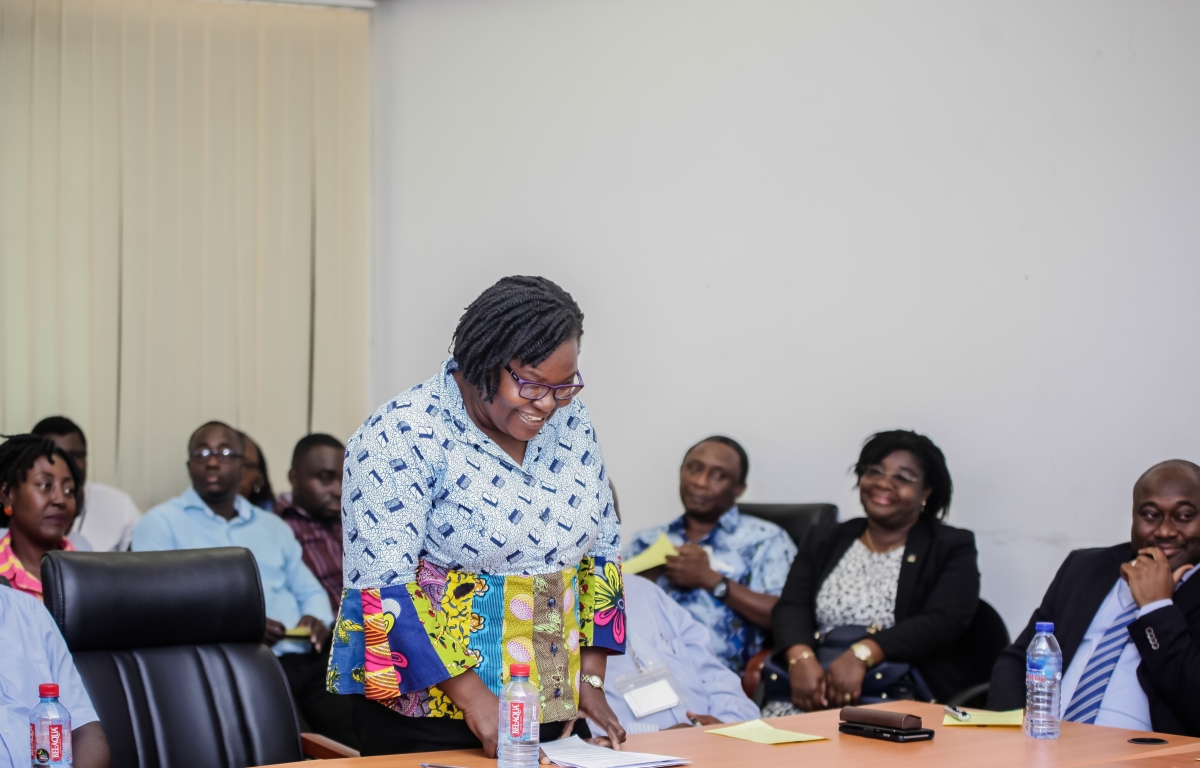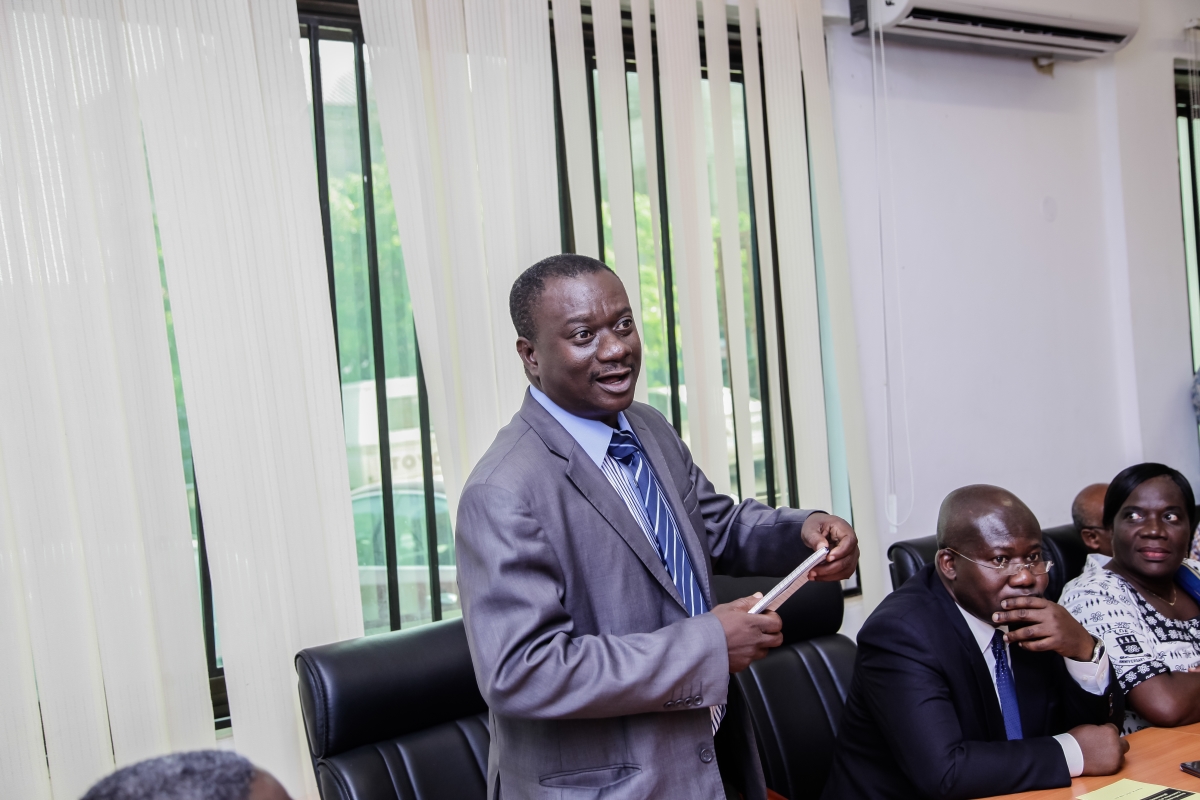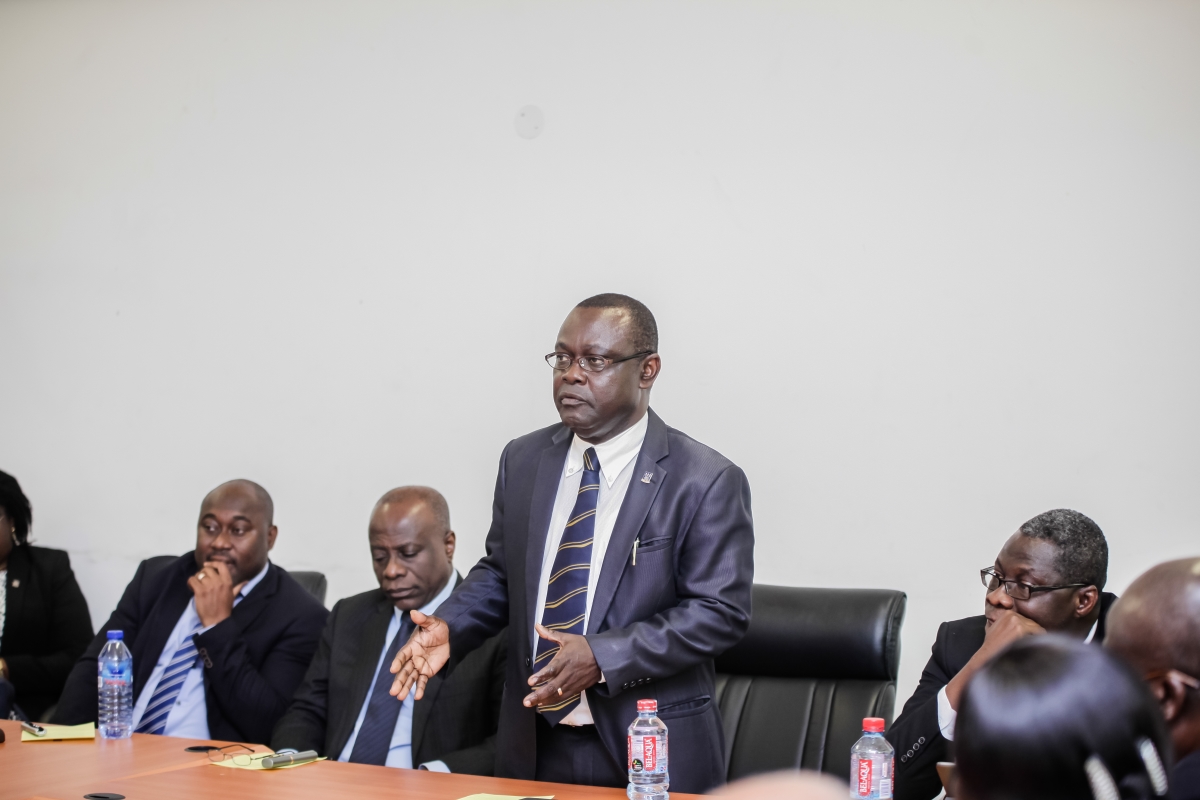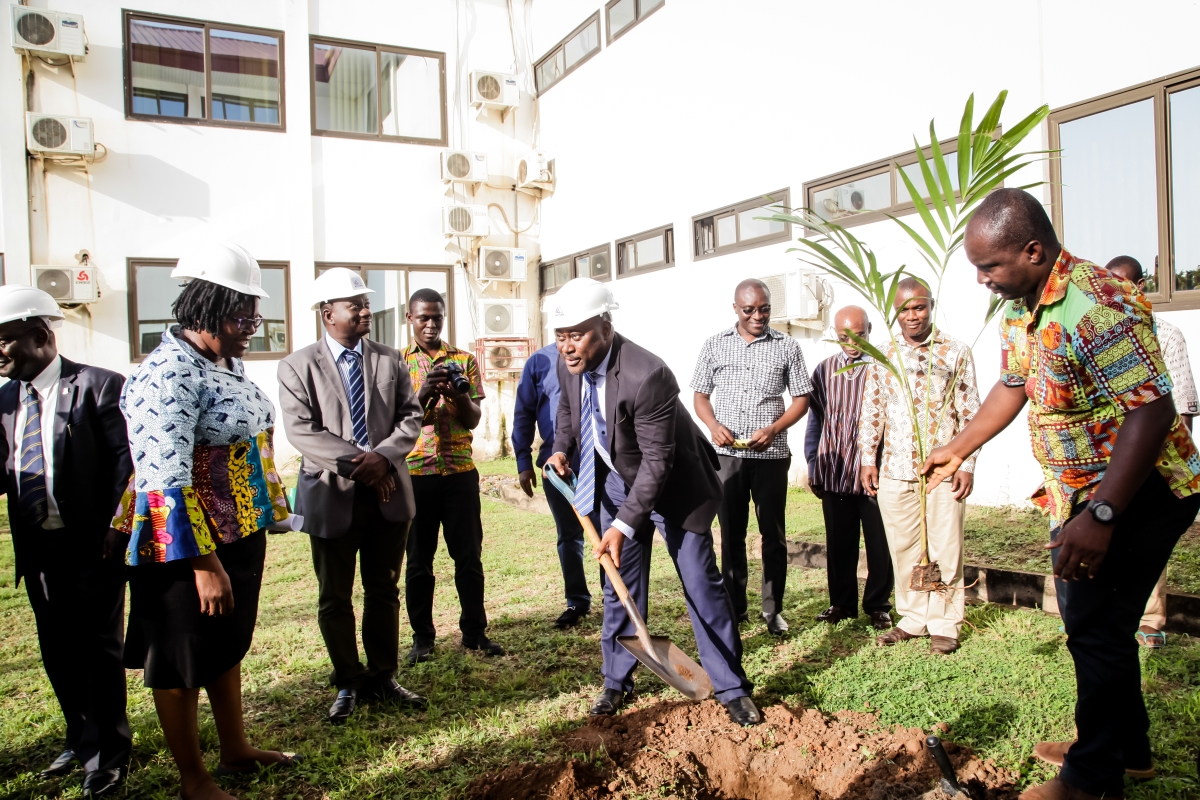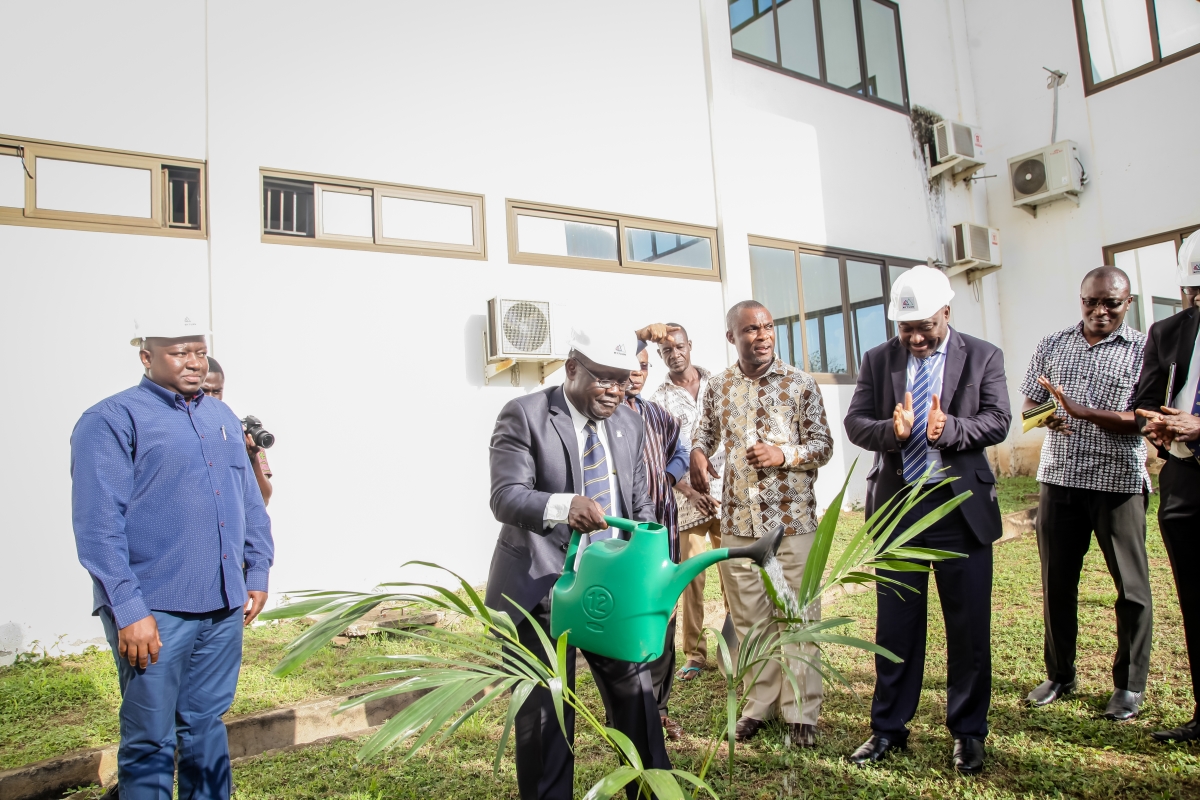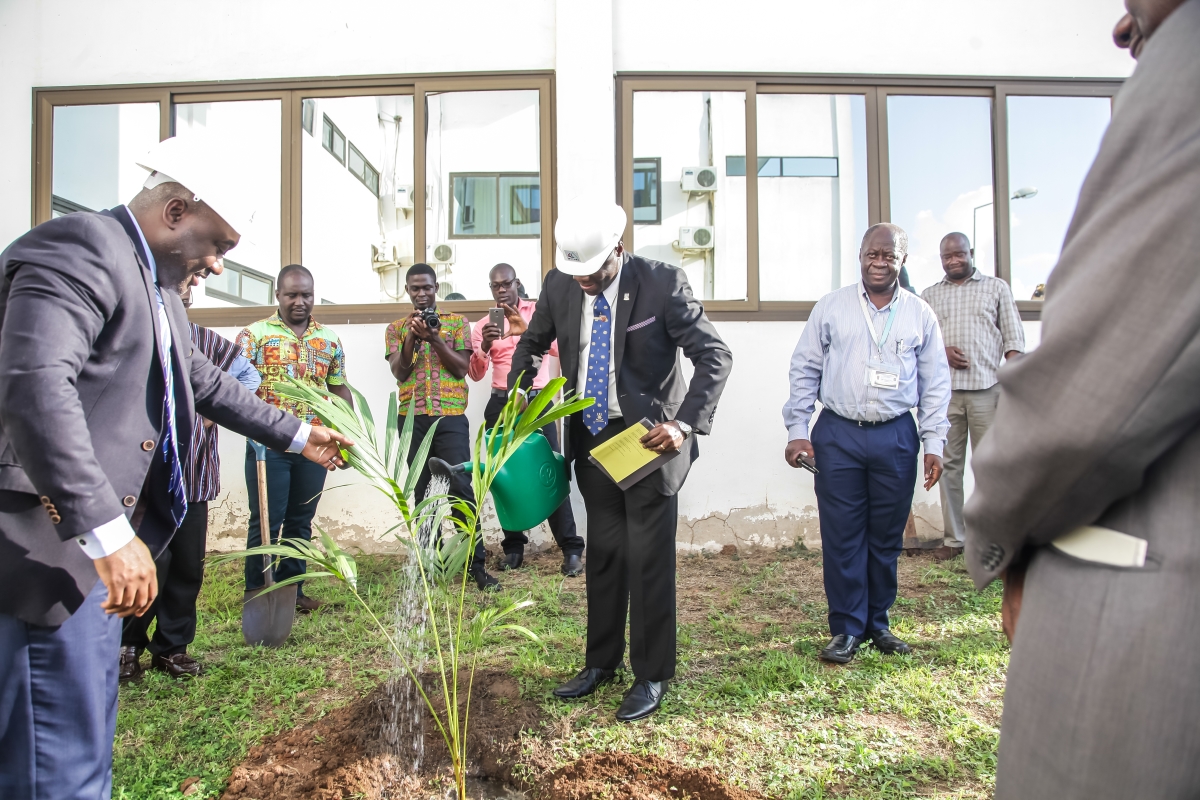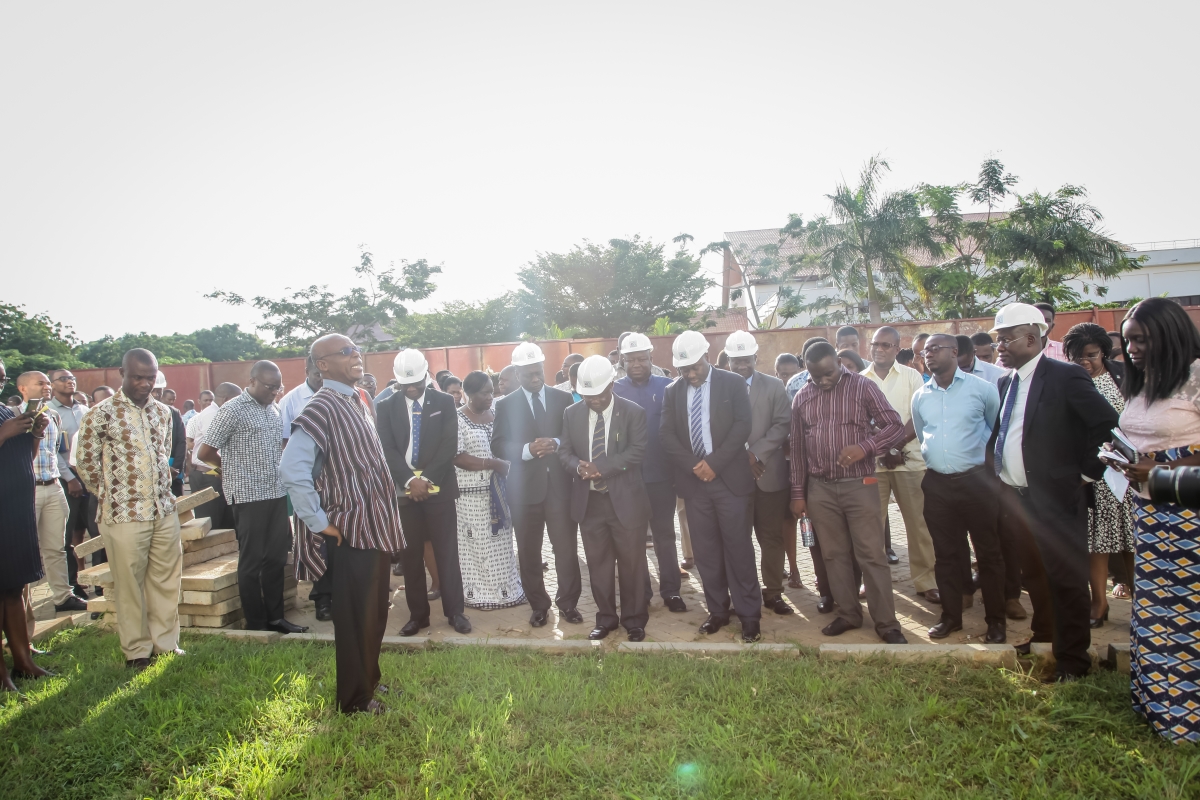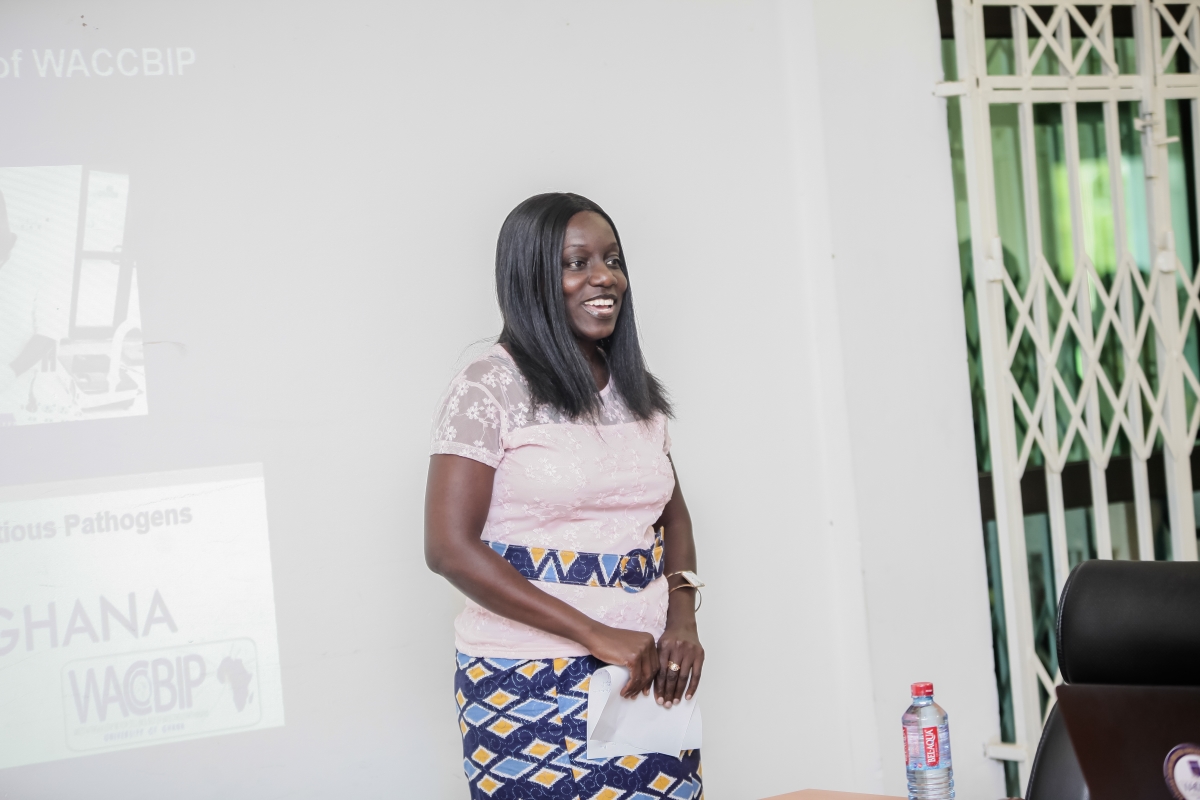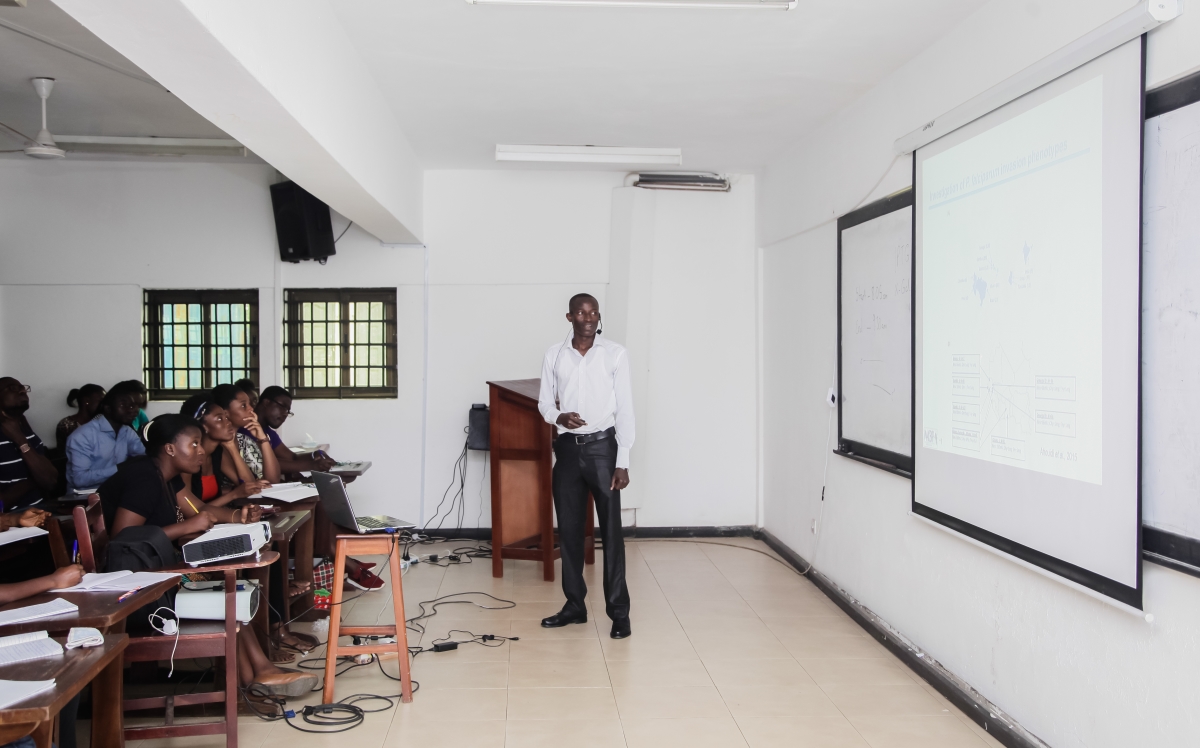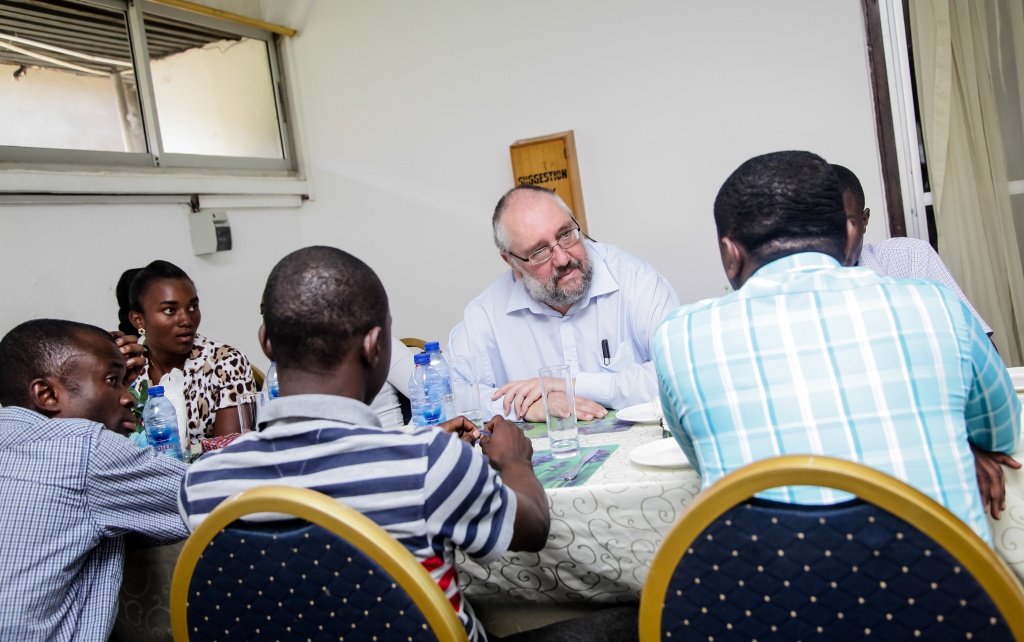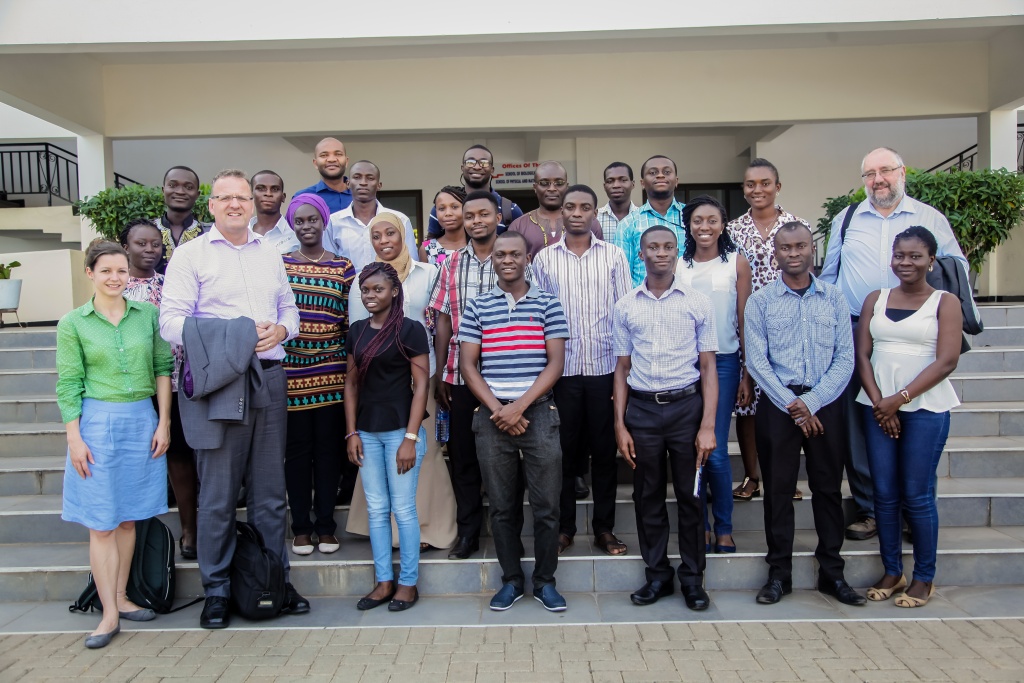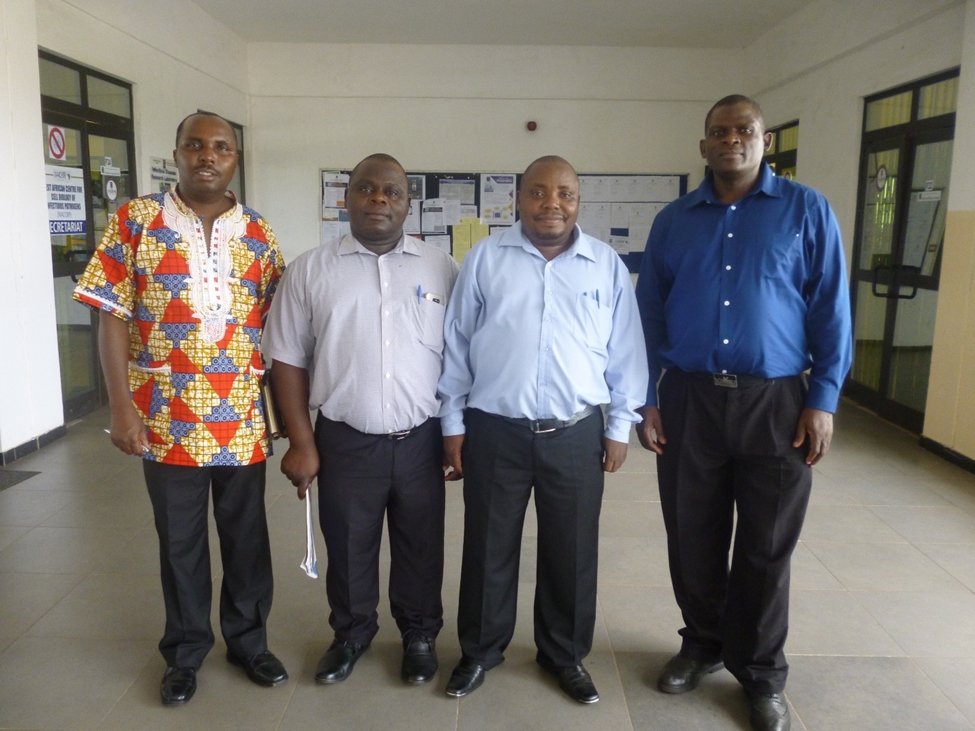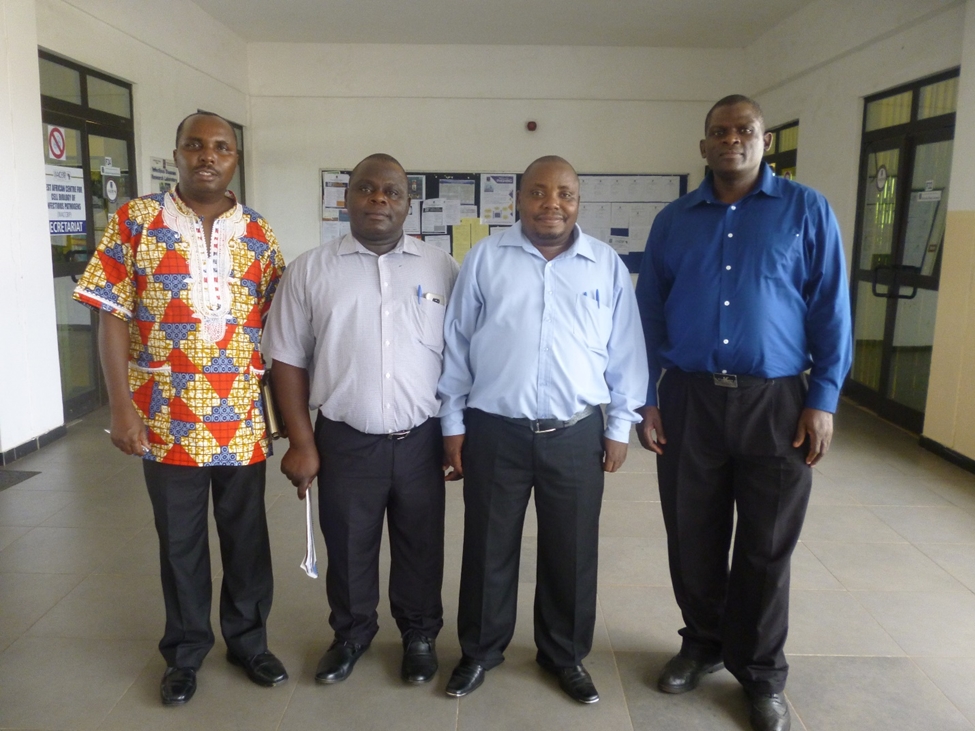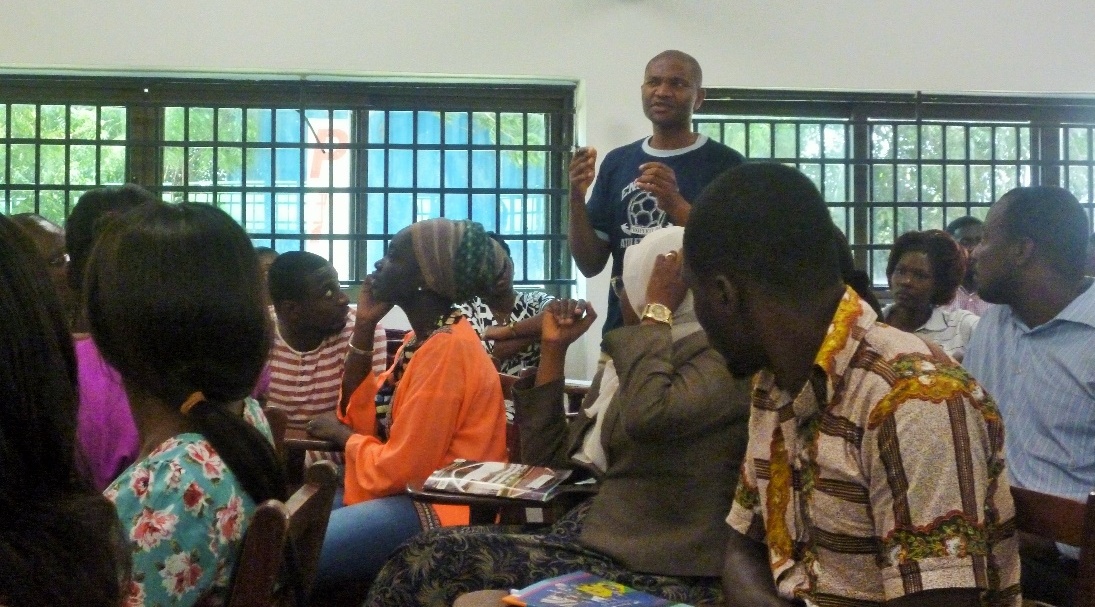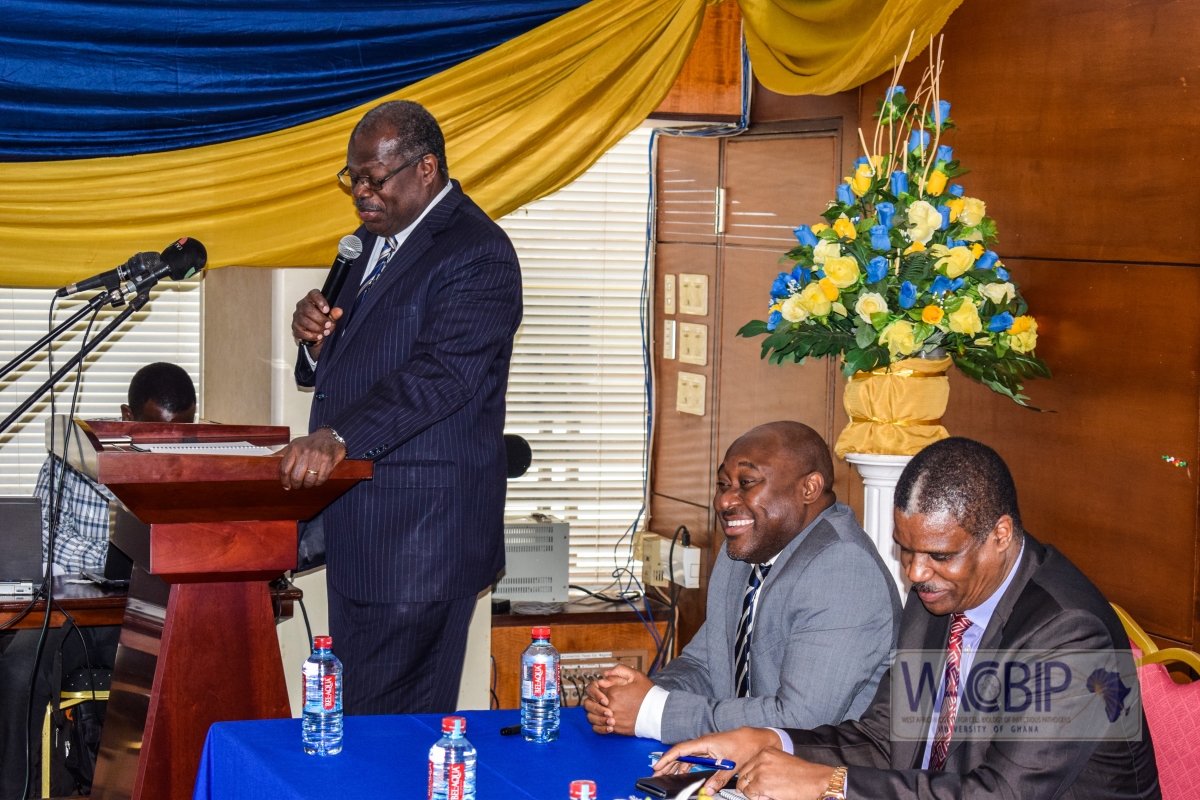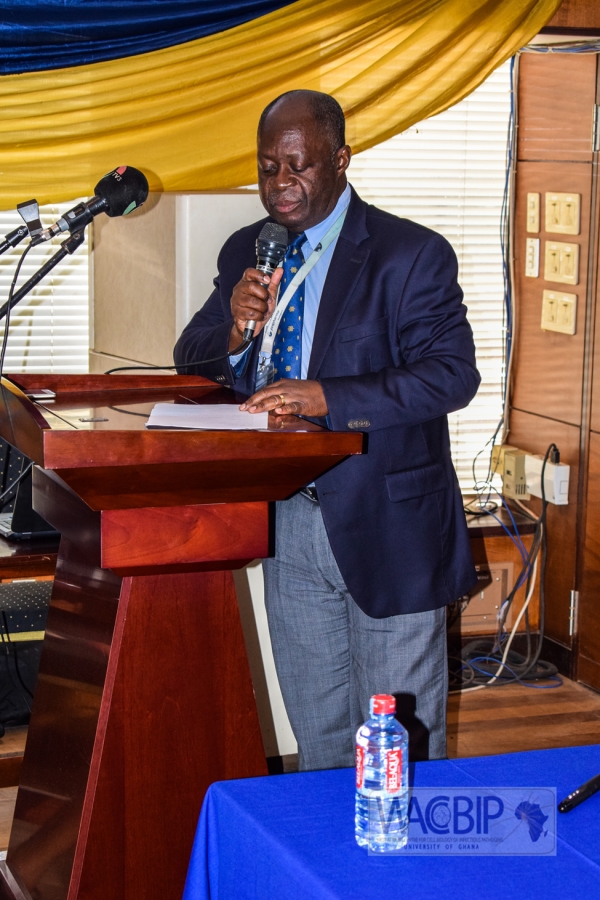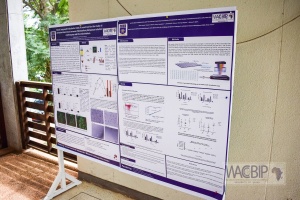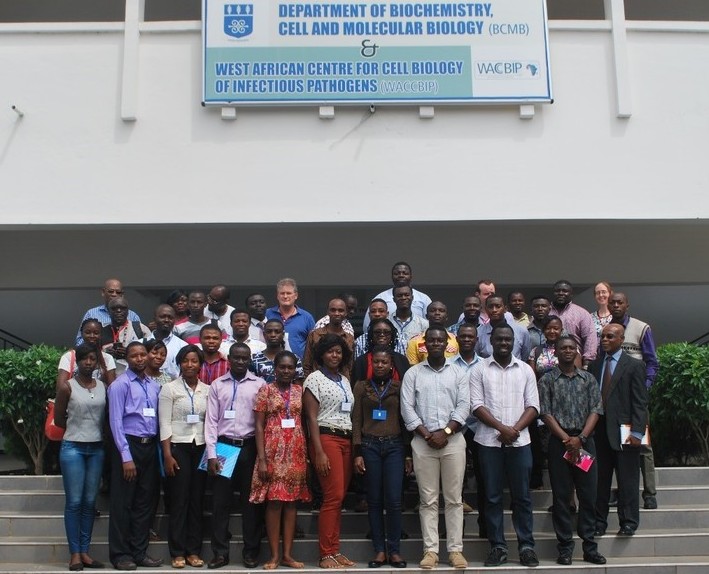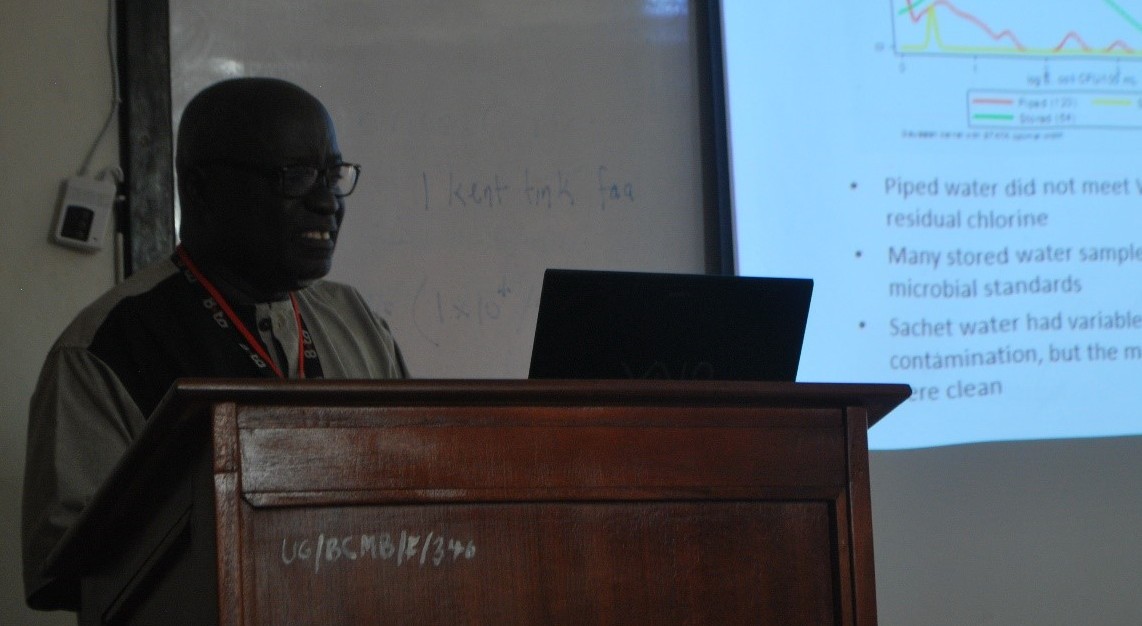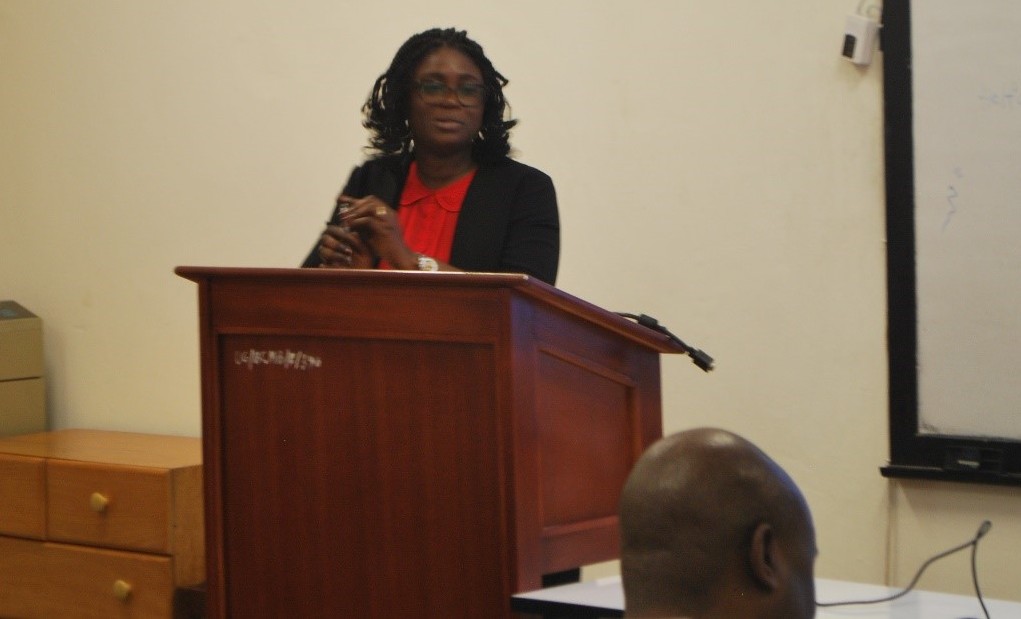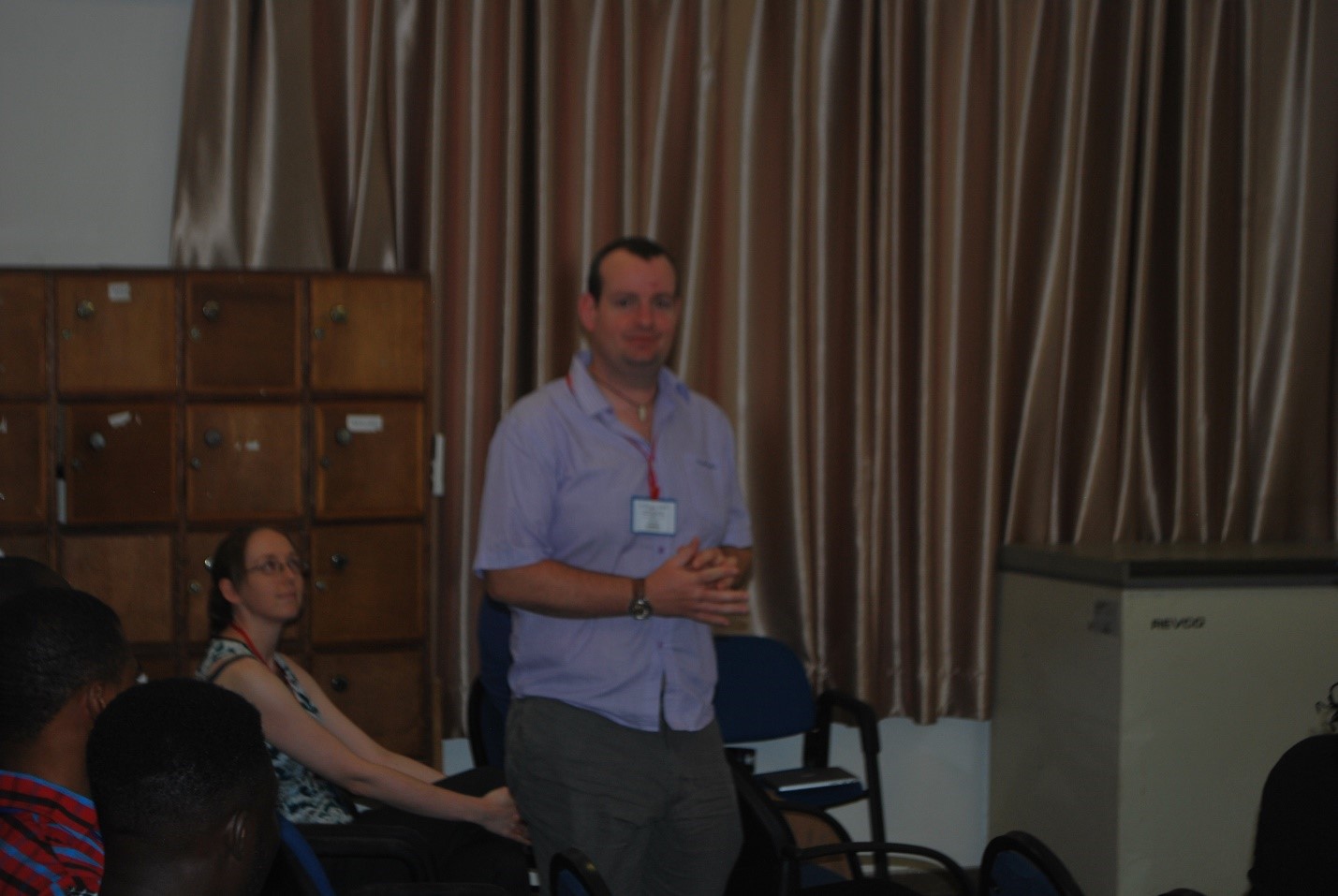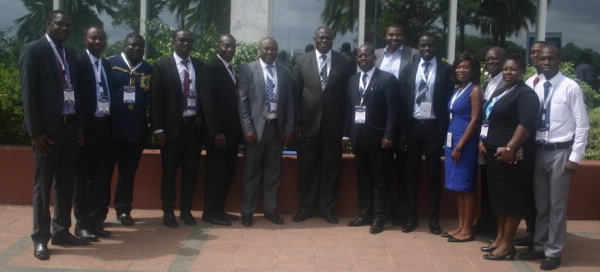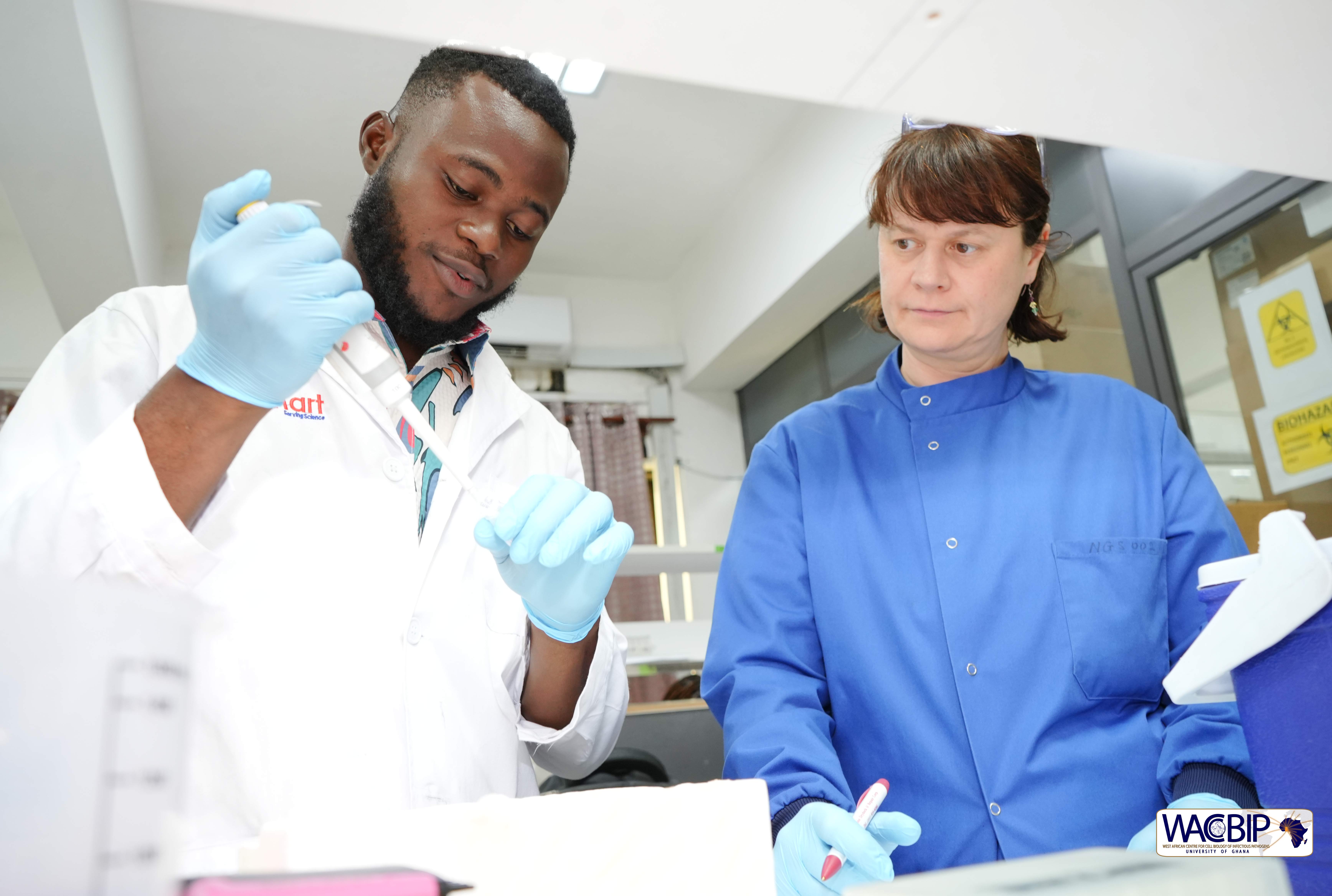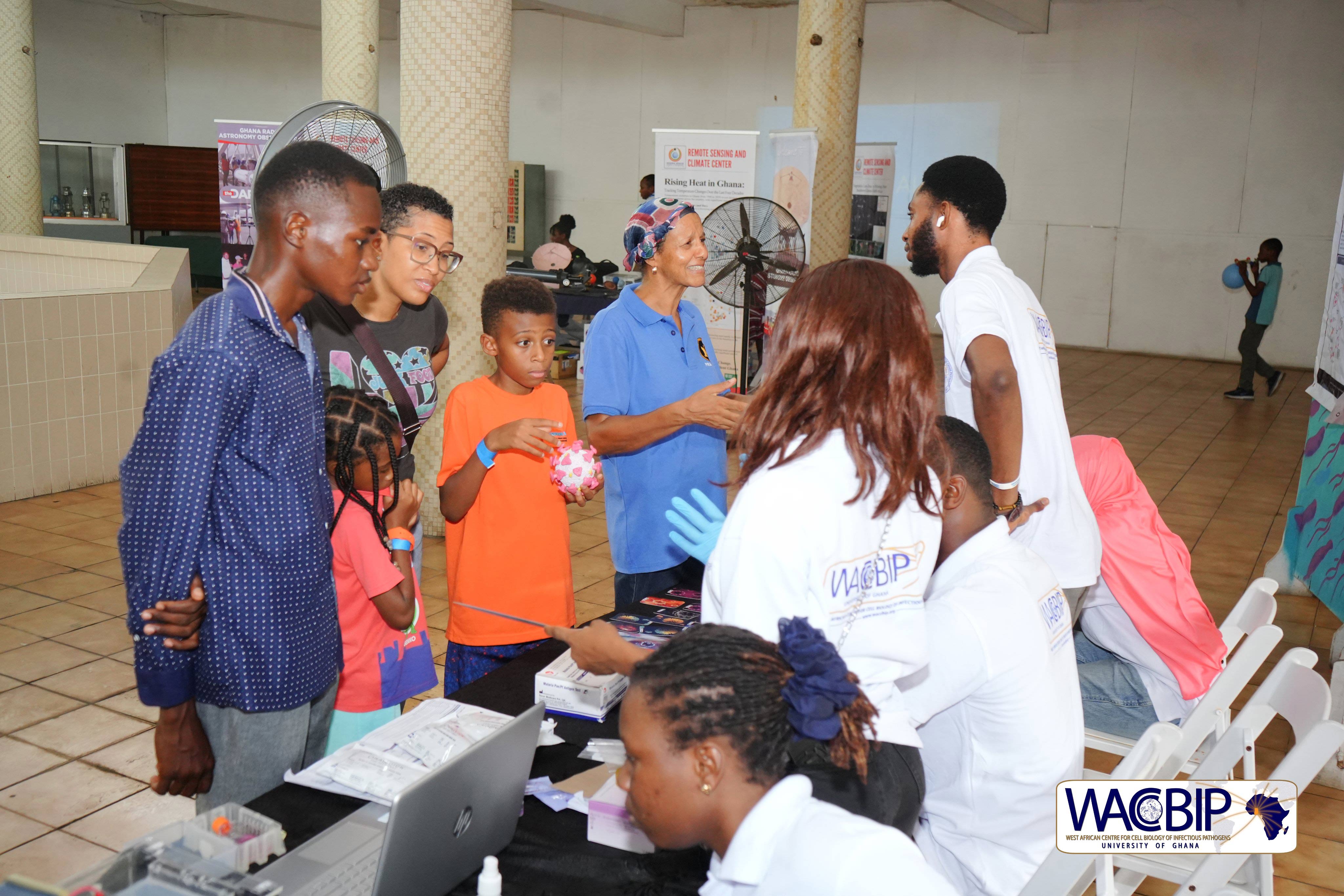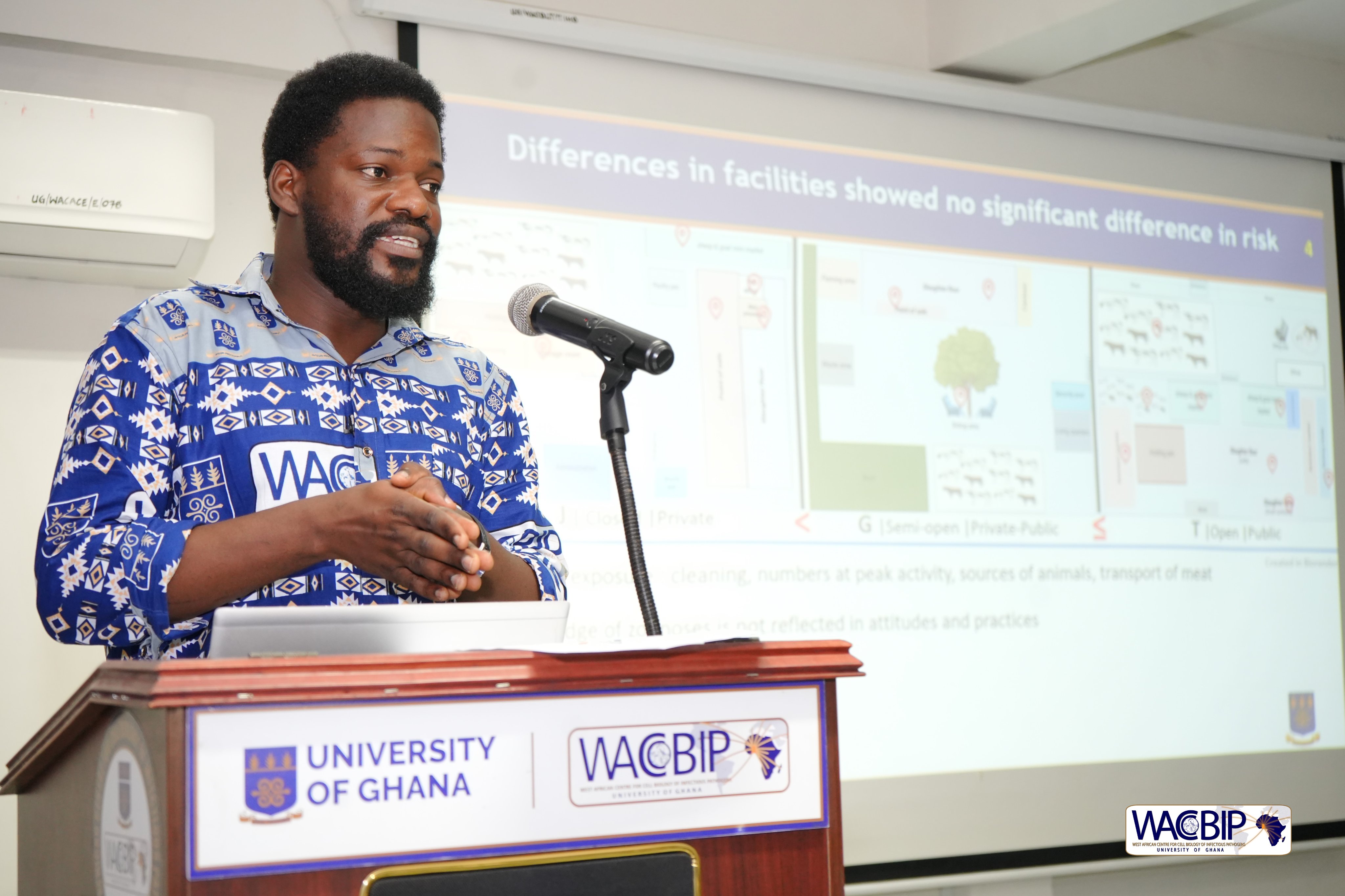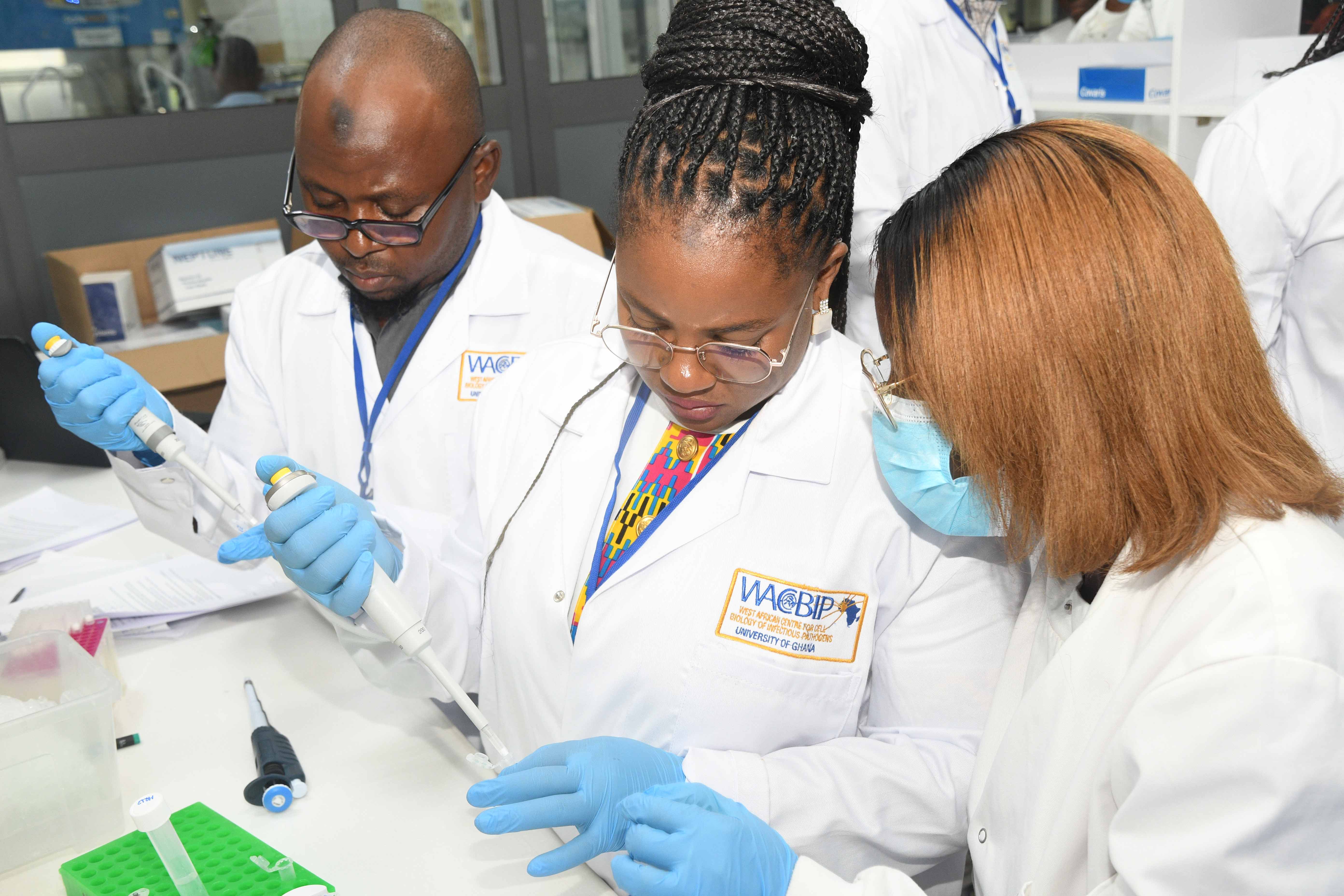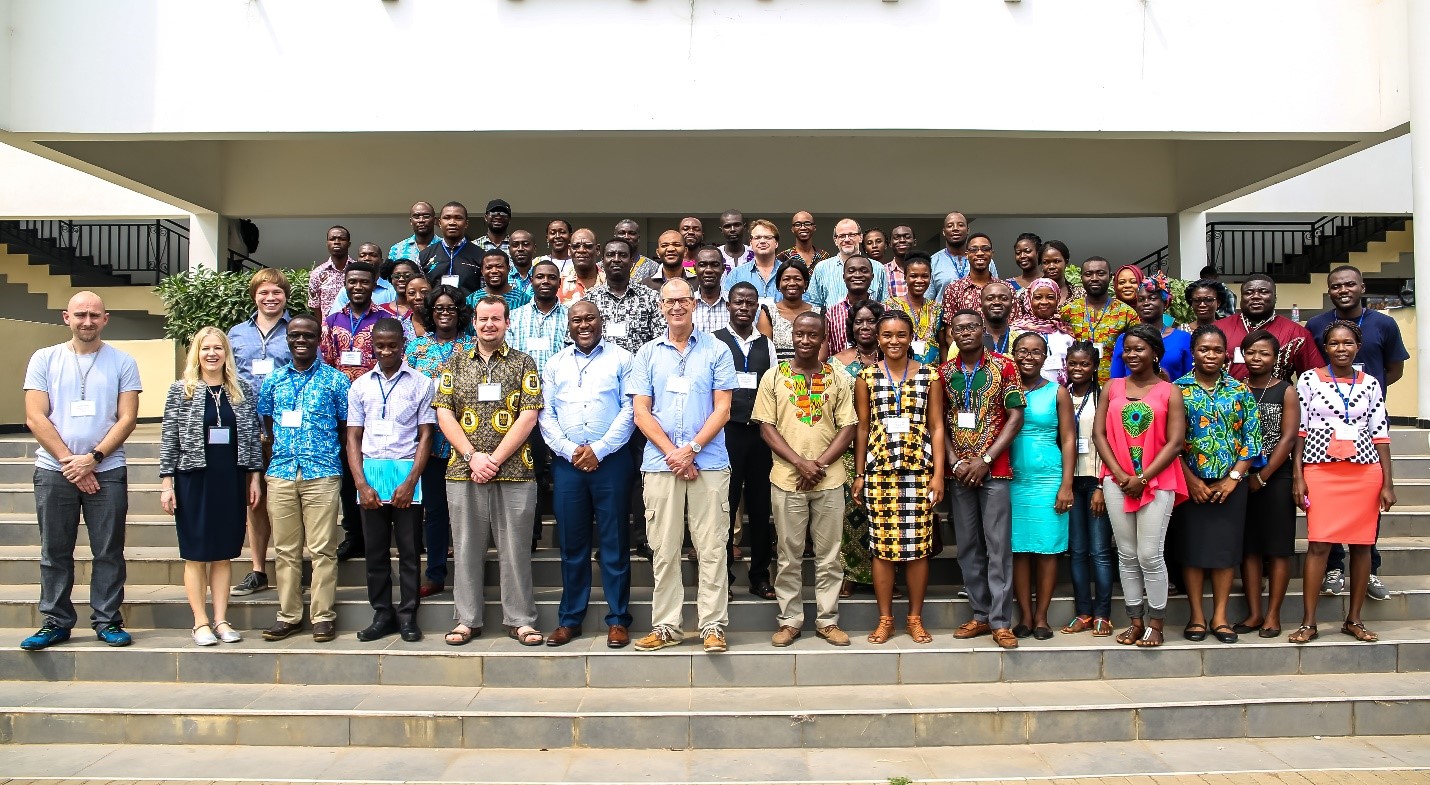
A group photograph of participants and faculty members
The two-week long workshop was aimed at teaching students strategies for modern biomedical research, focusing on the cell biology, immunology and genetic manipulation of protozoan parasites. The opening ceremony of the workshop attracted faculty members and invited guest speakers from top research institutions in Europe and the USA, in attendance were also postdoctoral fellows, Ph.D. and MPhil students.
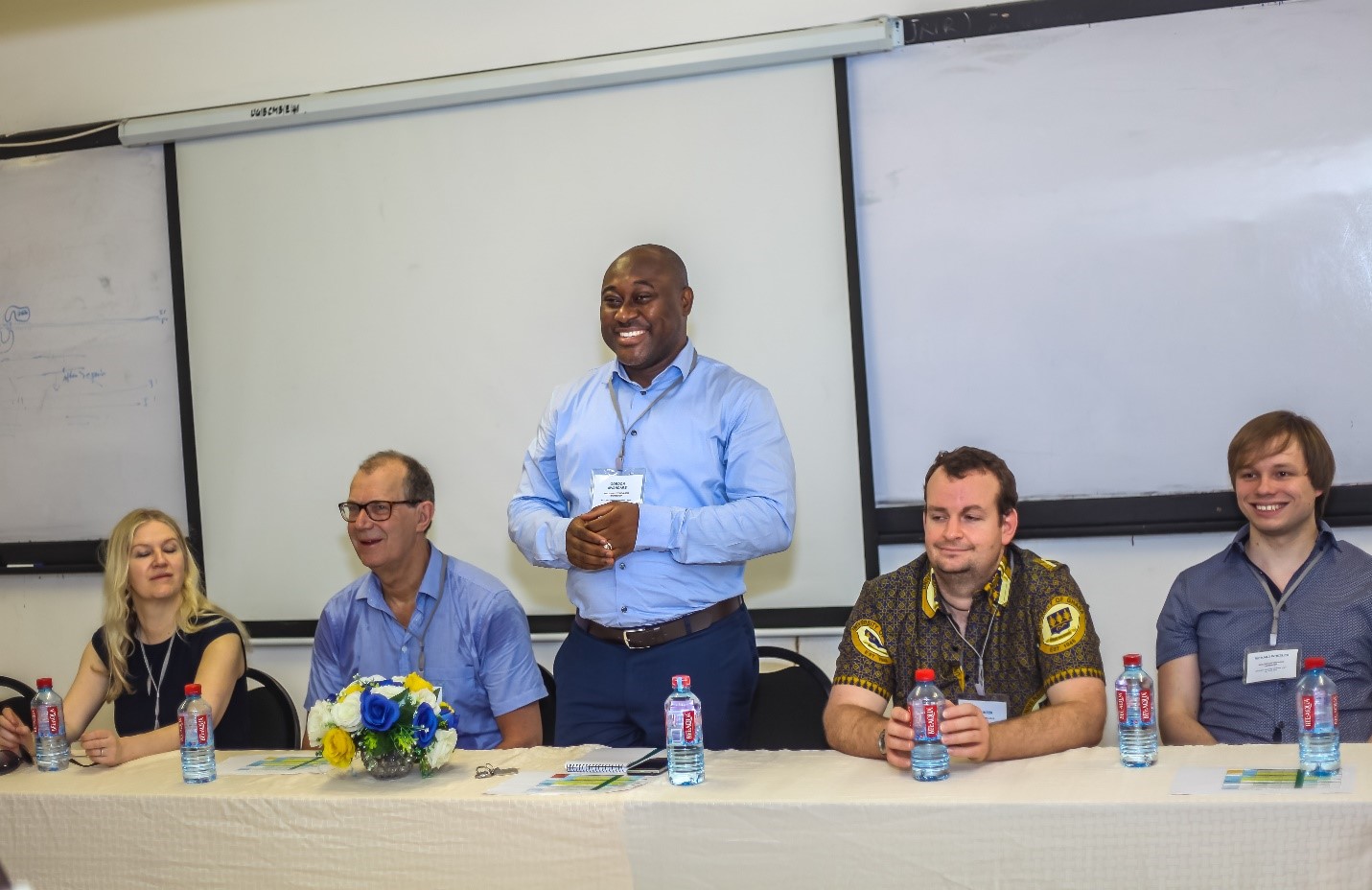
Prof Gordon A. Awandare welcoming participants to the workshop.
Welcoming participants to the workshop, the Head of Department of Biochemistry, Cell and Molecular Biology (BCMB) and Director of WACCBIP, Prof Gordon A. Awandare, highlighted the success of the workshop so far and expressed his gratitude to the collaborative partners for sponsoring this workshop since 2009. He also appreciated the guest speakers for their immense support to the growth of the workshop and believed that such collaboration would expand the scope of research in all fields of study for participants. He explained that WACCBIP has positioned itself as the principal catalyst for the development of scientific research in the country and is privileged to be taking over the cost of the ASCB workshop the second time. He admonished participants to take advantage of the knowledge of the top scientist during the workshop to deepen their understanding of molecular methods.
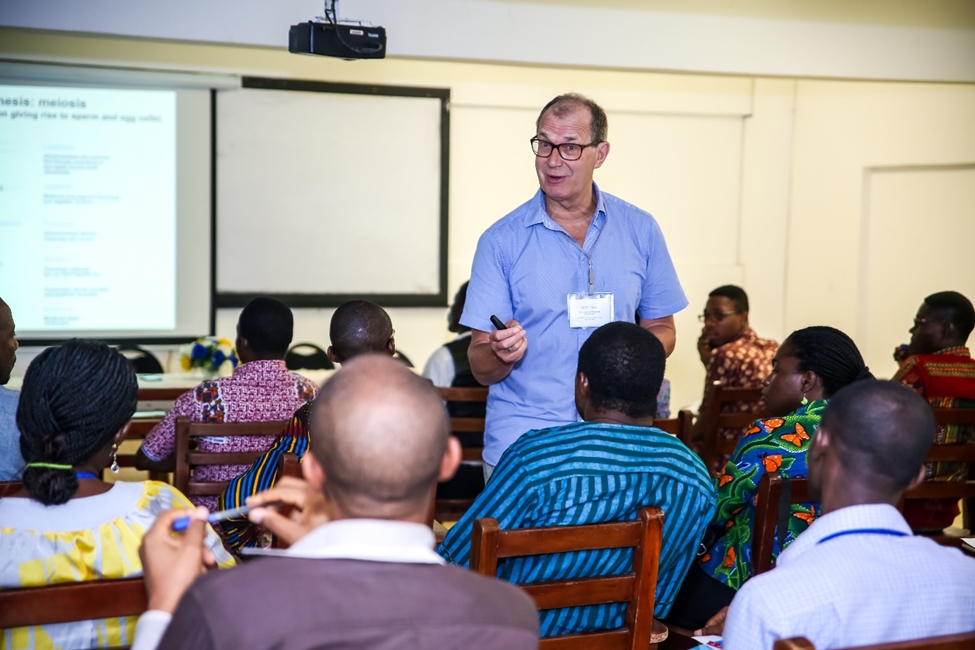
Prof. Keith Gull delivering his opening presentation.
Giving his remarks, Prof. Keith Gull of the Sir William Dunn School of Pathology at the University of Oxford who is also the Chair of the WACCBIP International Advisory Board, was excited about the workshop and advised participants to contribute their respective fields of specialization in discussions in order for the workshop to meet their expectations. He commended the leadership of WACCBIP and encouraged them to keep up with the good work. He further indicated that the workshop will cover both fundamental theoretical and practical aspects of techniques in laboratory work and how to manipulate Trypanosoma and Plasmodium. He added however that, “the workshop is not just about knowing how to excel in cell biology but to enhance talents for capacity building”. He reiterated the need for young scientists to take advantage of the After Genome (AG) age to sustain their passion in their chosen fields.
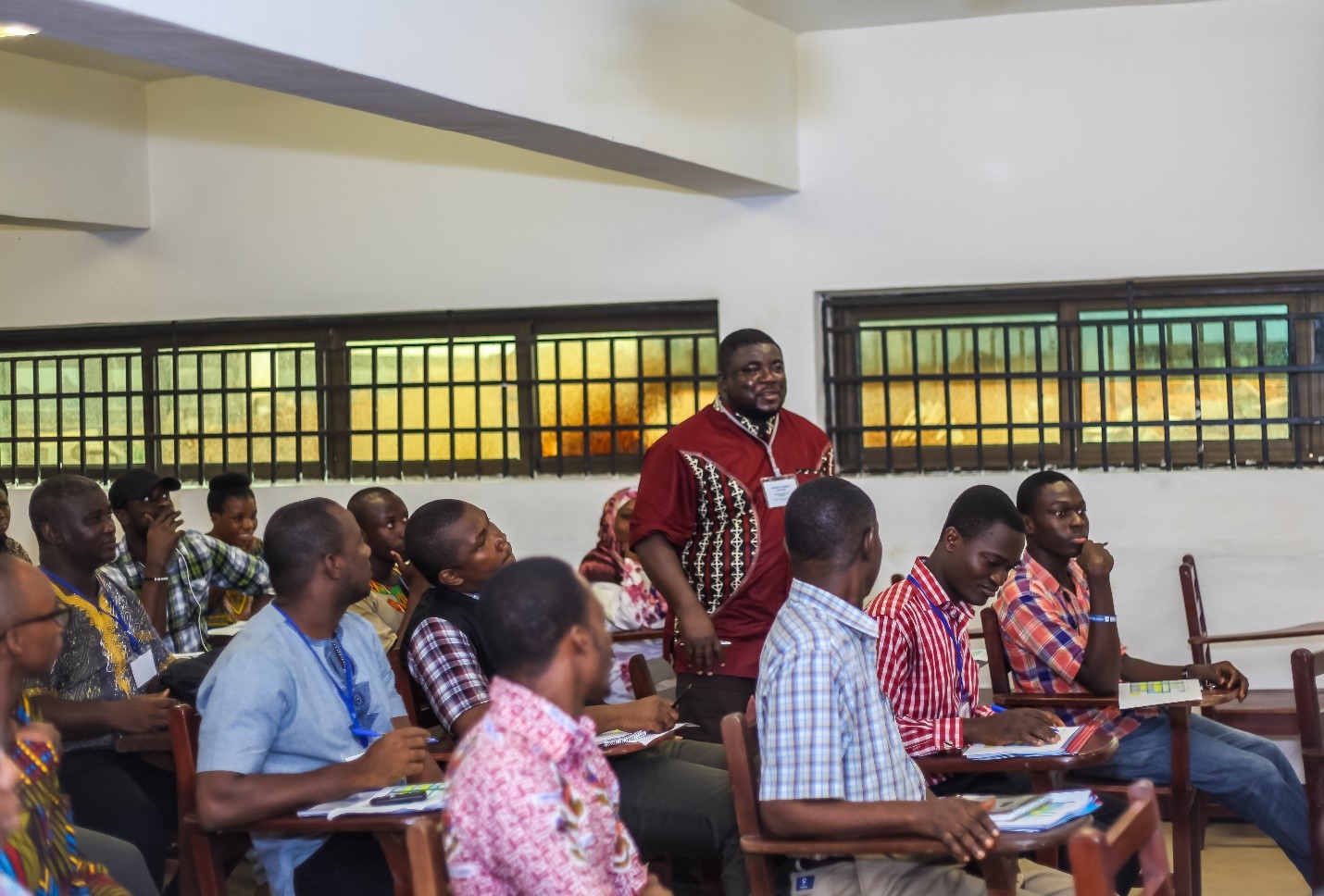
Dr. Patrick Kobina Arthur, addressing participants at the workshop.
The Head of Training and Research of WACCBIP, Dr. Patrick Kobina Arthur, also called on the students to participate in the workshop with continual interest and enthusiasm. He admonished them to abide by the time schedules and take proper notes to widen their scope.
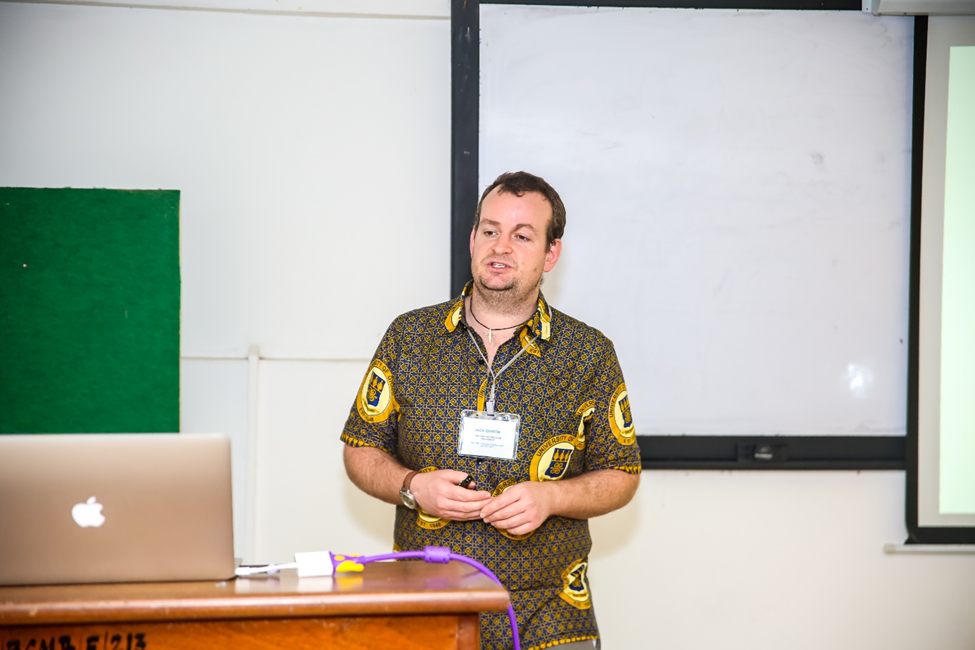
Dr.Jack Sunter from the University of Oxford presenting on the structure of trypanosomes
Dr. Jack Sunter from University of Oxford, UK, and a lead facilitator of the workshop said that participants will be exposed to new areas in the genomic makeup of cells in microbiology and encouraged participants to fully engage in discussions. He urged them to use this platform to network and exchange information about recent research findings on advanced materials.

Prof. Dr. Friedrich Frischknecht presenting on the history of microscopy at the workshop.
Prof. Dr. Friedrich Frischknecht from University of Heidelberg, Germany, opened the workshop with an intriguing presentation on the history of microscopy. He acknowledged Ibn al-Haytham as the first scientist to lay the foundations for modern optics in transforming the way in which light and vision is understood.
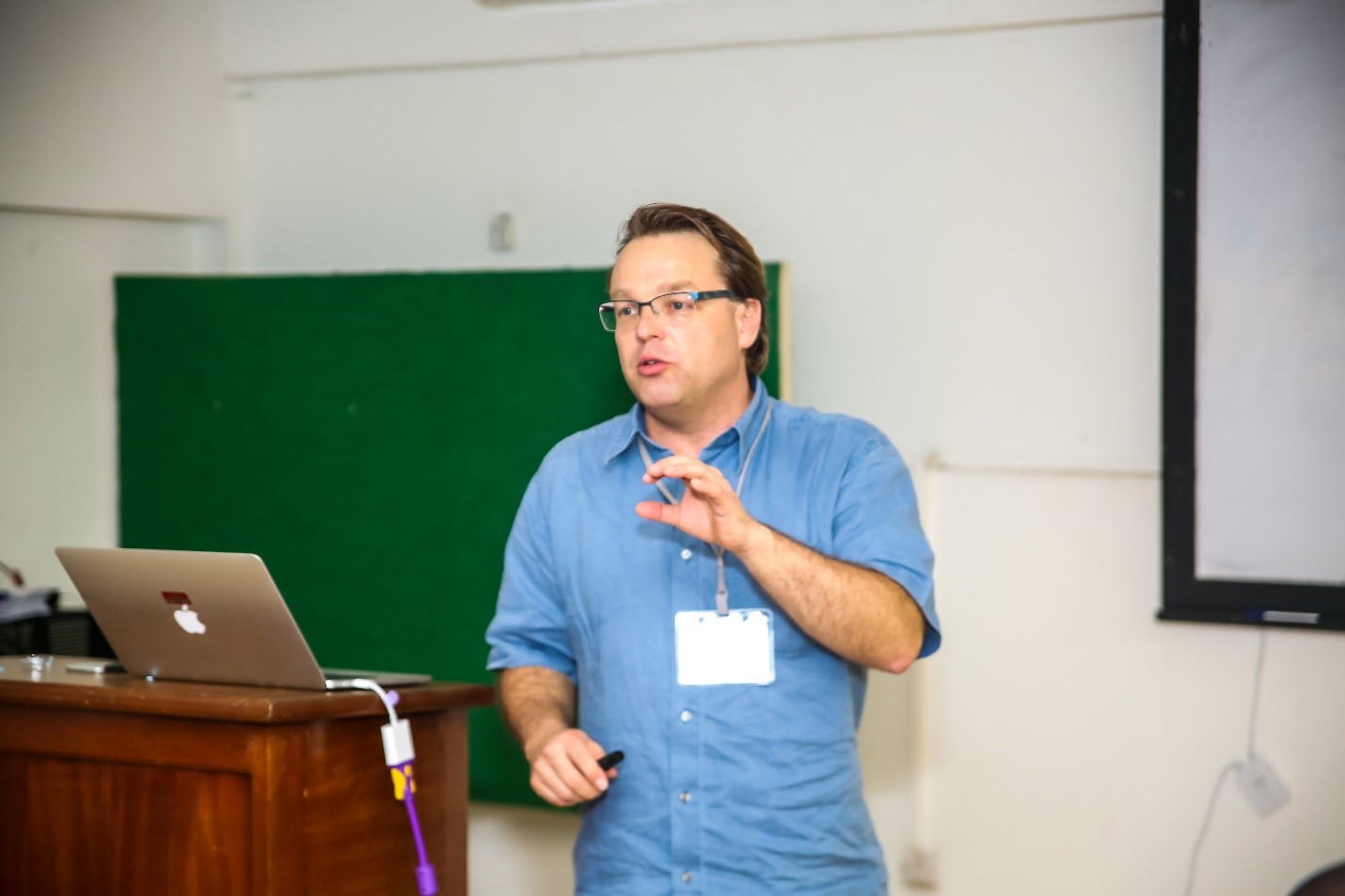
Prof. Oliver Billker discussing topics with participants
Other international faculty who taught at the workshop included Prof. Lars Hviid (University of Copenhagen and Rigshospitalet, Denmark) Prof. Oliver Billker (Wellcome Trust Sanger Institute, UK), Dr Sam Dean (University of Oxford) , Dr Richard Wheeler (University of Oxford) and Dr Sue Vaughan (Oxford Brookes University). Participating lead faculty were from BCMB, Noguchi Memorial Institute for Medical Research (NMIMR) and the College of Health Sciences.
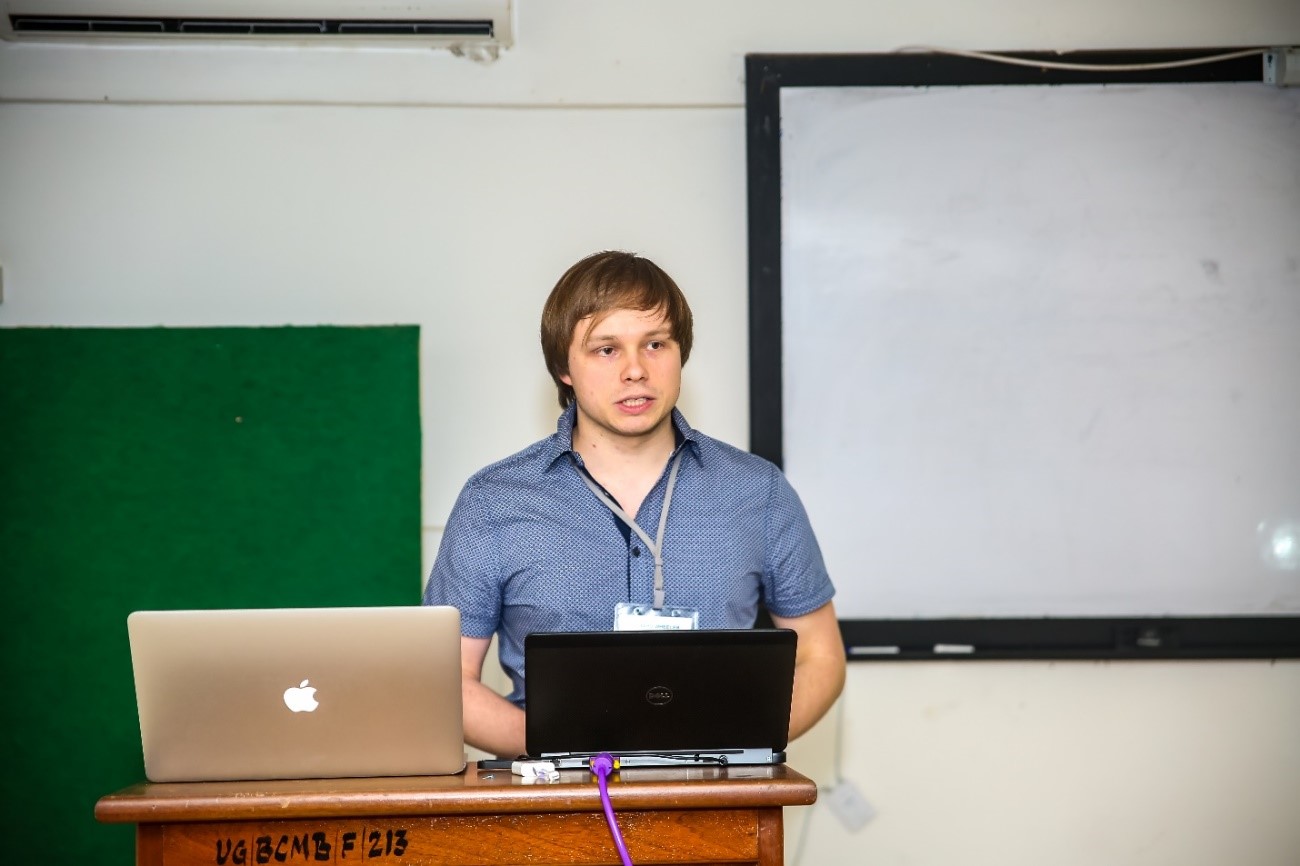
Dr Richard Wheeler delivering a presentation on Genes and Genomes
Topics taught included: Scientific Communication Skills, Grant Writing and Obtaining Funding in Africa, Developing Research Proposals, Assessing and Reading Scientific Papers, Immunology of Malaria, Modern Light Microscopy and Flow Cytometry, Biochemistry and Metabolism and Drug Vaccine Design. Participants also engaged in group presentations, journal club discussions of selected papers from literature and hands-on laboratory sessions.

Prof. Neils Ben Quashie presenting on PCR in Malaria Research
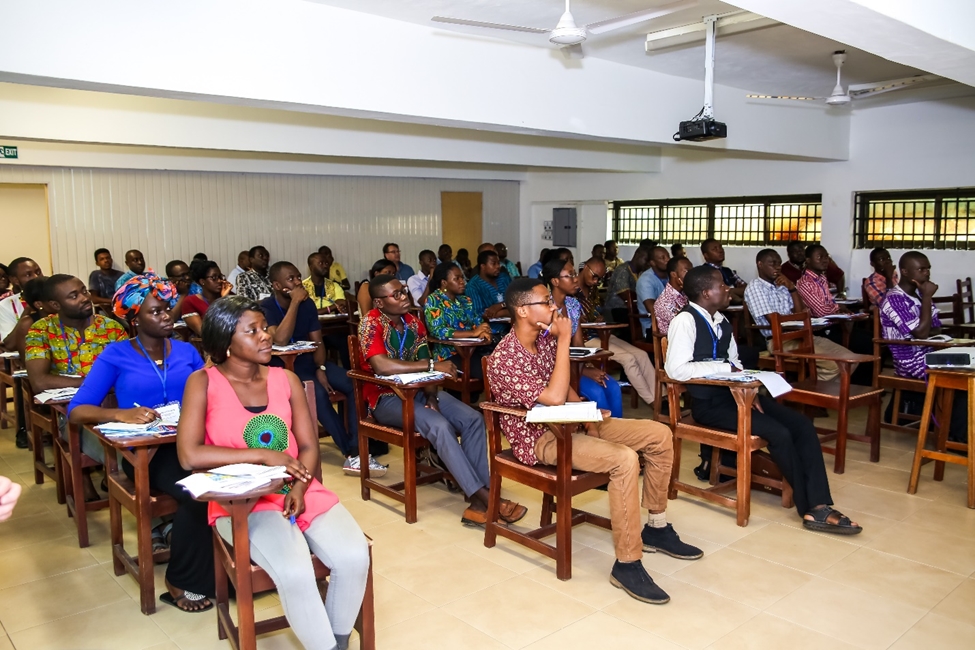
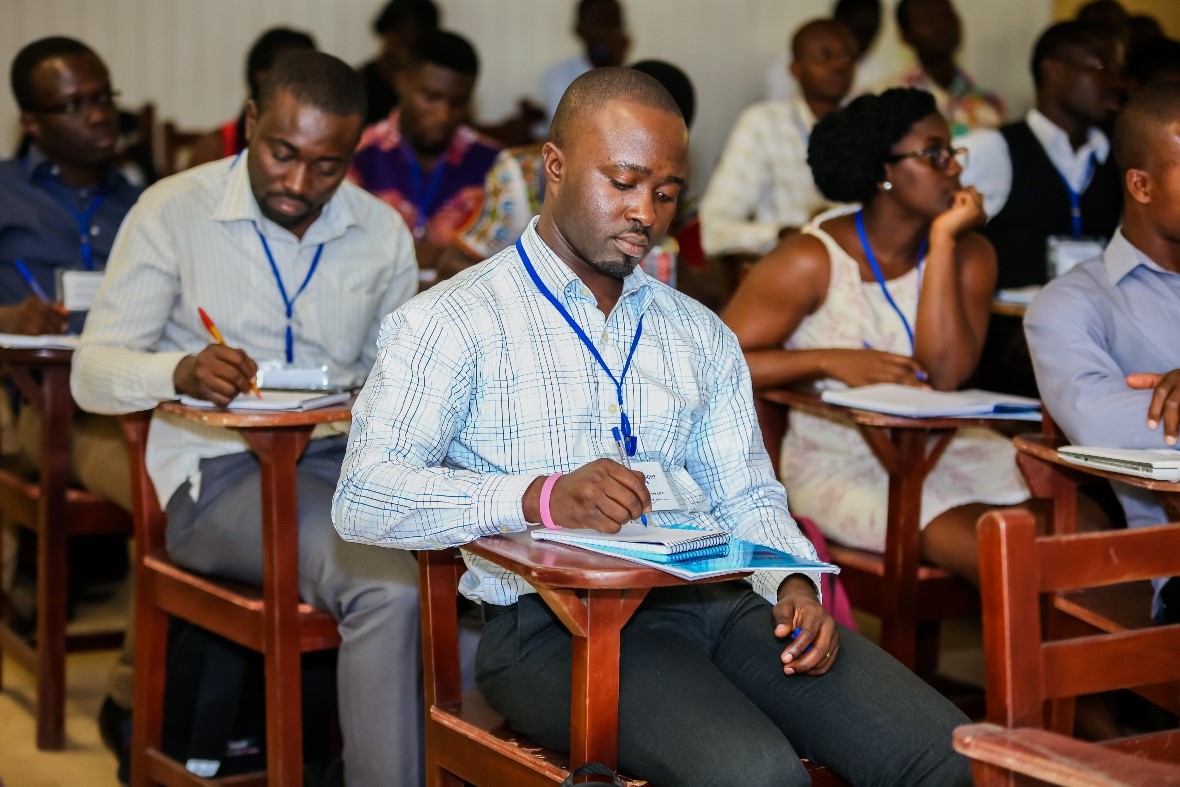
Participants at the workshop
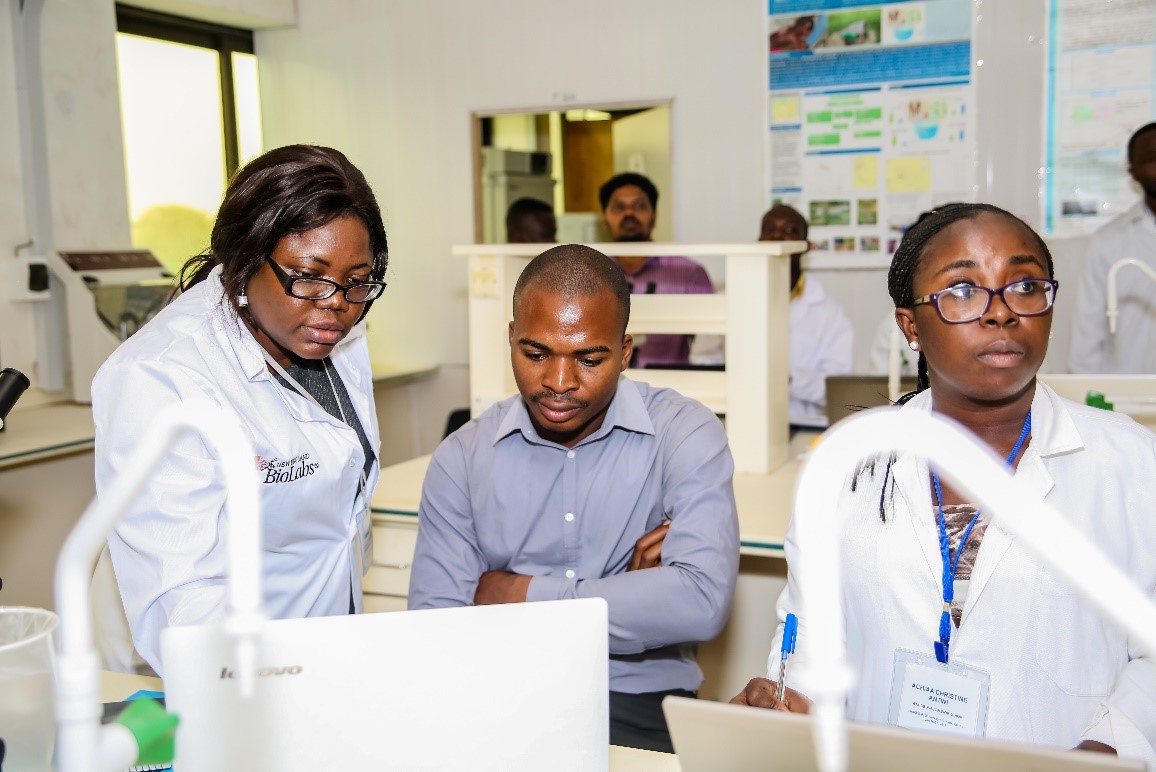

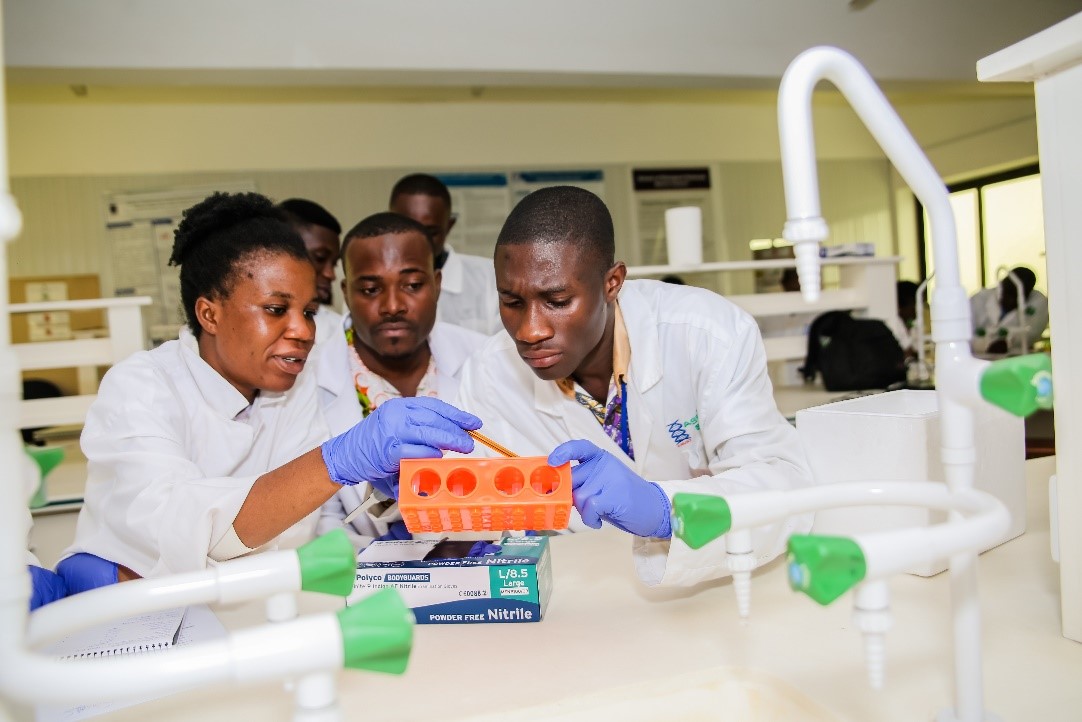
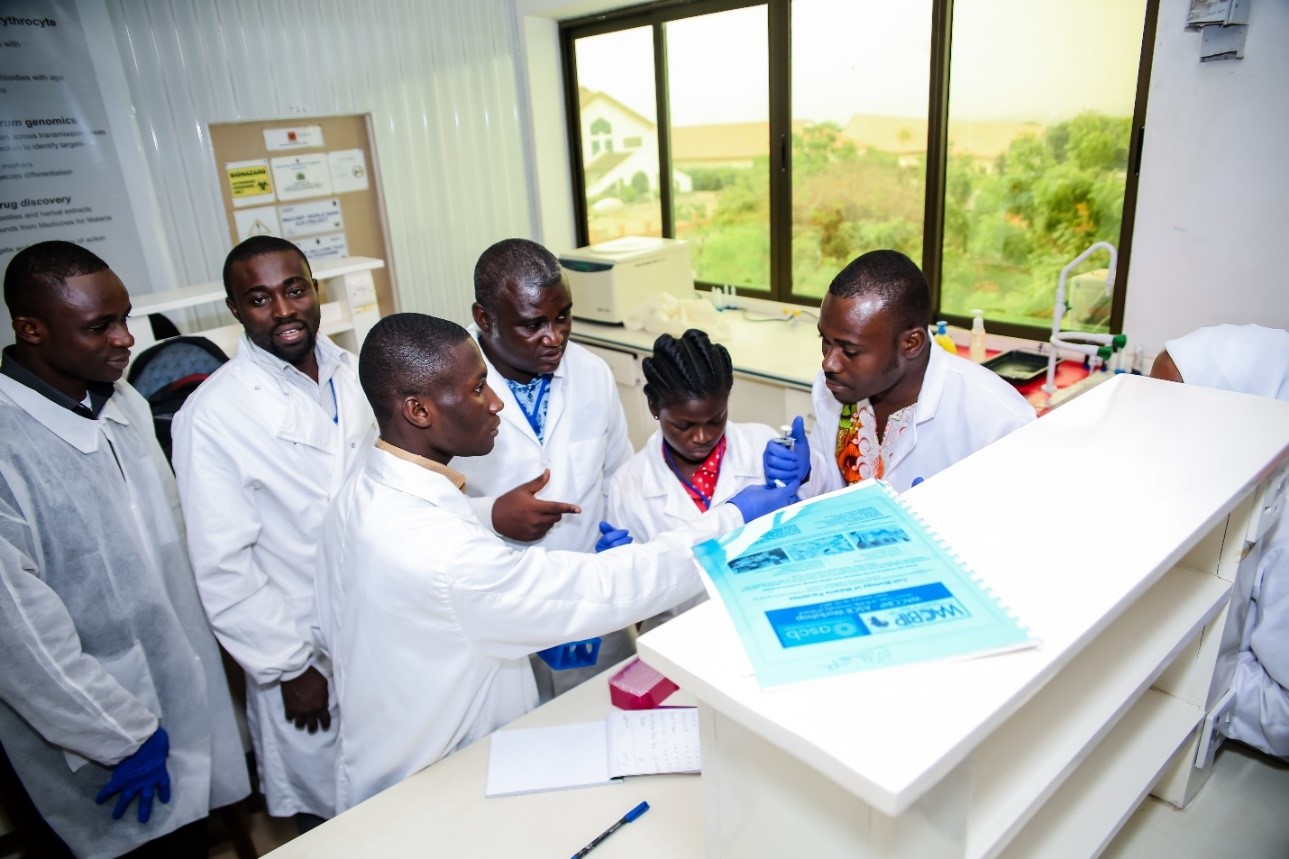
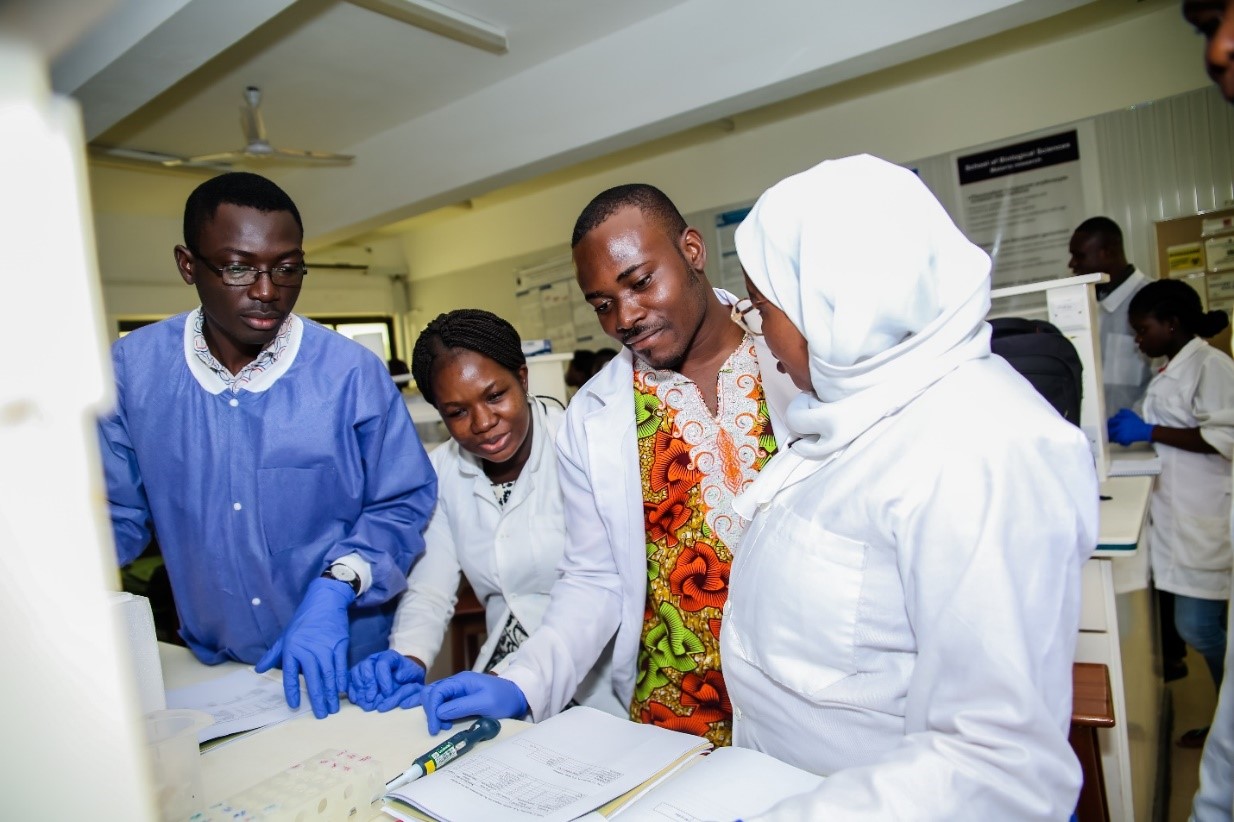
Participants undergoing hands – on laboratory sessions
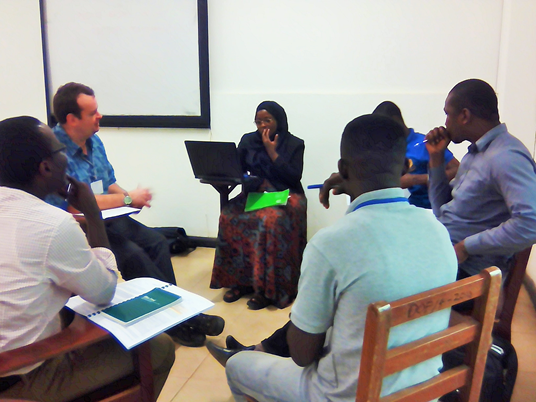
Journal Group 1 in a discussion
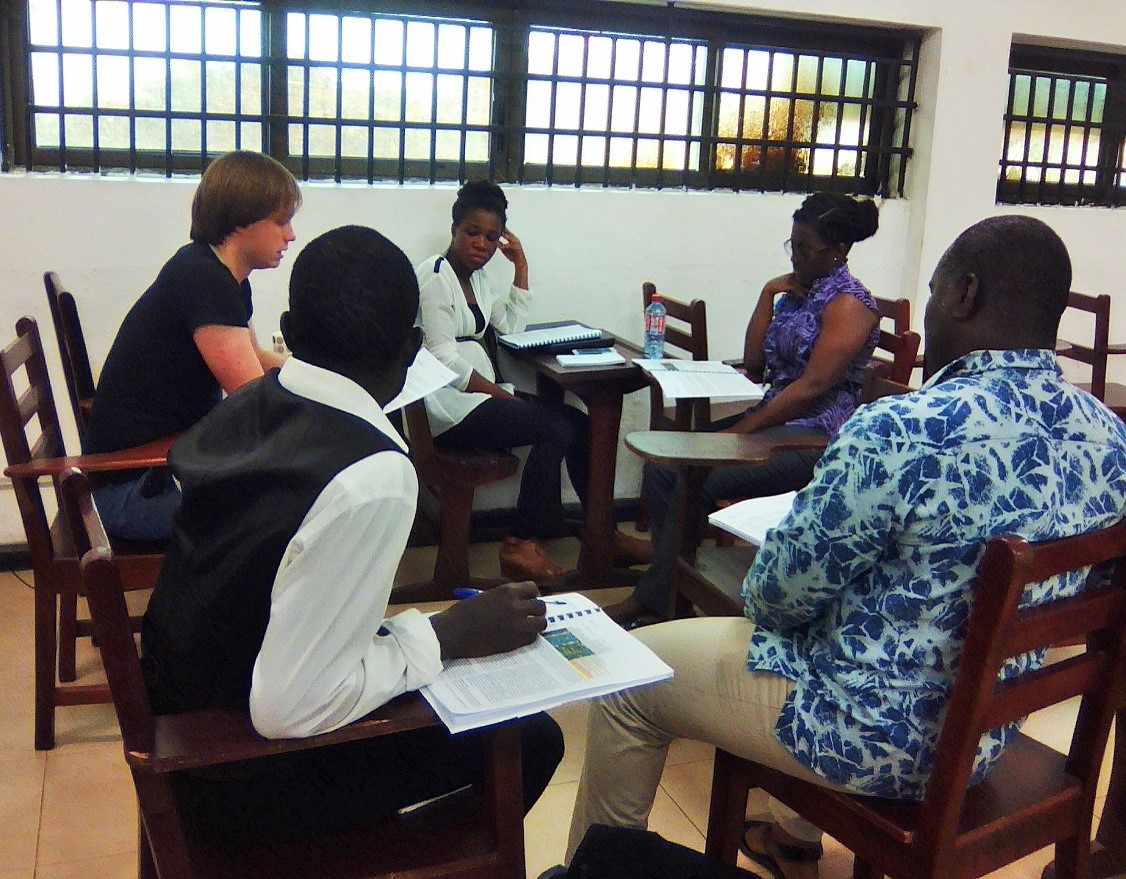
Journal club group 2 in a discussion
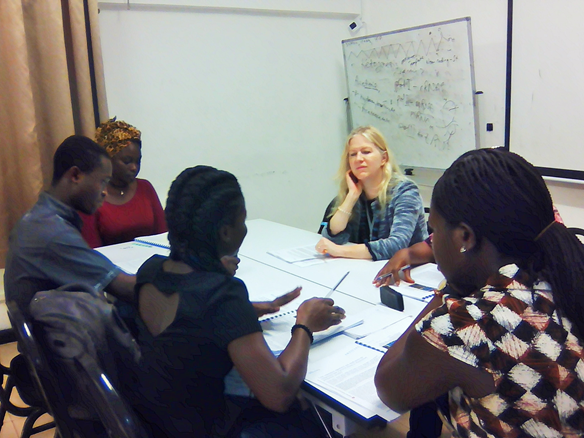
Journal club group 3 in a discussion
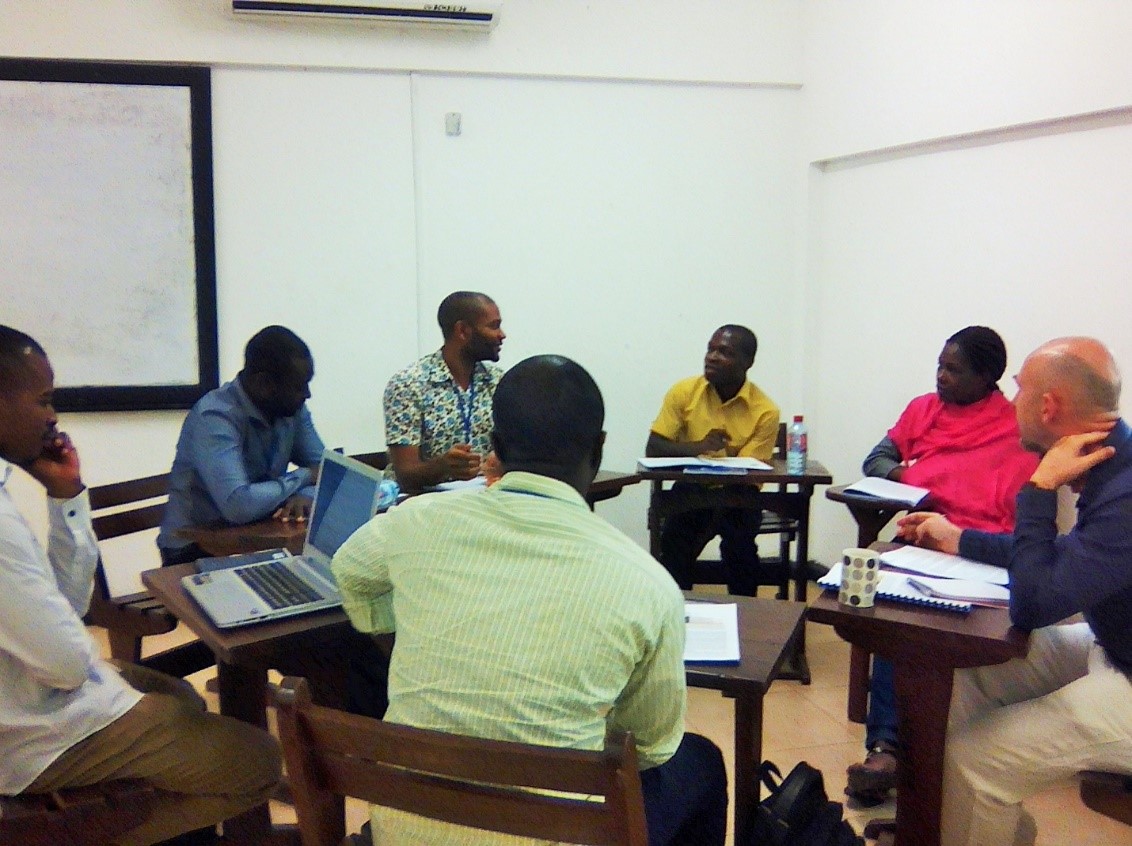
Journal club group 4 in a discussion
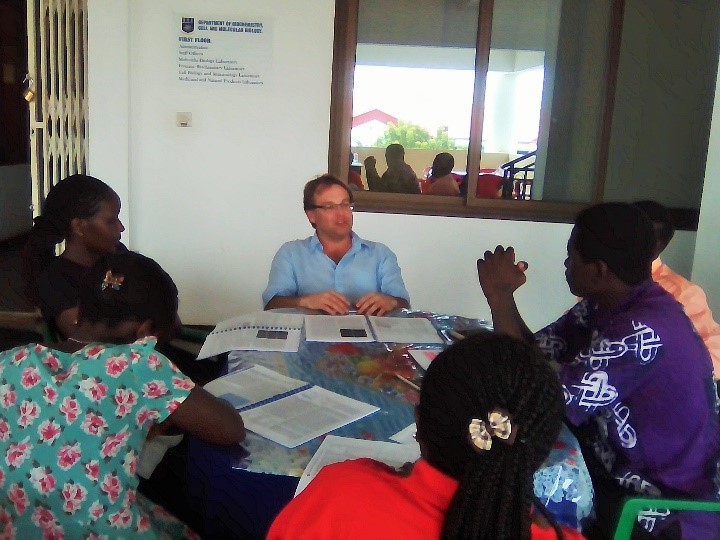
Journal club group 5 in a discussion
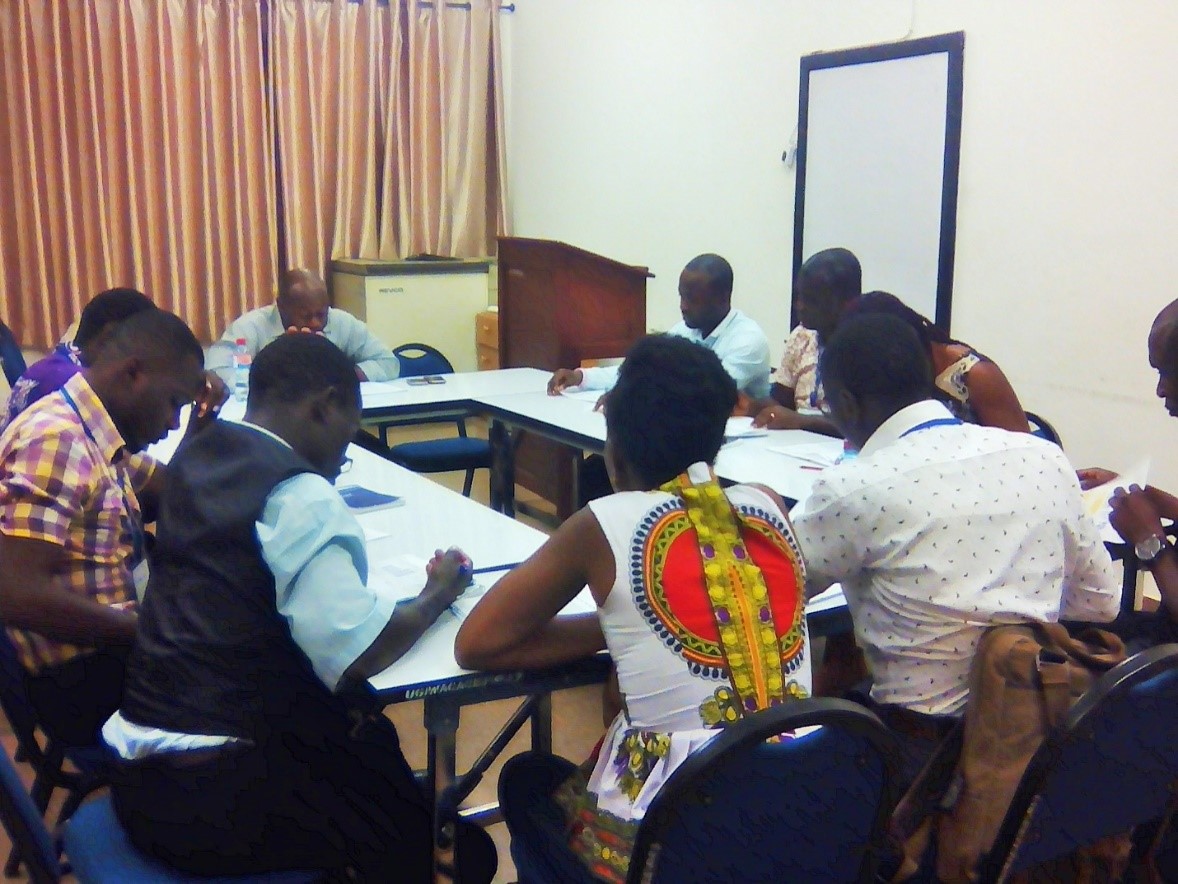
Journal club group 6 in a discussion


